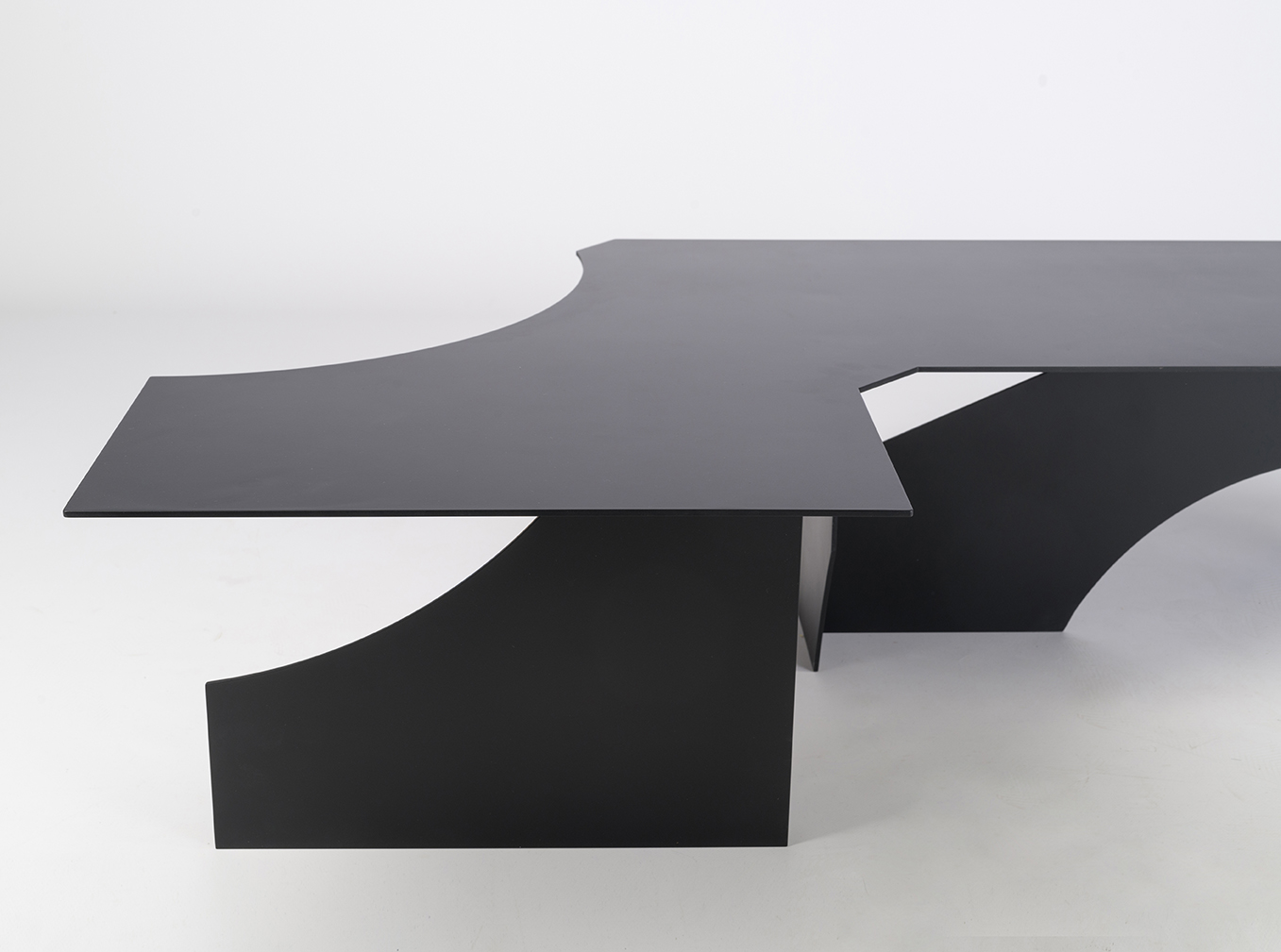2024__Merge__Side Table Collectible Design
![]()
![]()
Italy is one of the world’s leading producers of marble. Marble processing is an operation that generates a large quantity of waste, also known as “offcuts,” which vary in type and size. These offcuts originate from the fractures that occur during processing, which are quite common given the nature of the material, or from pieces that remain after processing or extracting a marble piece. The waste resulting from the cutting and processing of stone can range from a minimum of 35% to a maximum of 75% of the physical unit. Therefore, from 100 kg of marble (block) input, only 25 kg of finished product may be obtained, and the remaining 75 kg constitute the waste.
![]()
![]()
In a country like Italy, where the tradition of marble has a millennia-old history, where stone is born or transported to become sculpture, art and history, the production of waste derived from processing leaves its mark on the ground, defenseless.
In a dialogue of contrasts, collaboration, and sustainability, aluminum embraces marble. It doesn’t disturb, deface, or interfere with the material but rather welcomes and supports it.
The project “Merge” welcomes these remnants and emphasizes their uniqueness. In each piece, the story of the previous narrative remains sculpted. Each piece is an expression of a previous narrative. Matter and transformation. “Merge” is a collection that extends our exploration into material recovery and sustainable design principles.
In addition to the marble, we’ve chosen to use aluminum, which is a 100% recyclable material. In this narrative, the materials showcase their own peculiarities and put them in comparison.
They undress to clothe each other: they are no longer waste but in constant transformation, becoming new material. Materials are shown in their authenticity without any further processes applied. The product is completely handmade in Italy.
![]()
![]()
![]()
![]()
Collectible Design
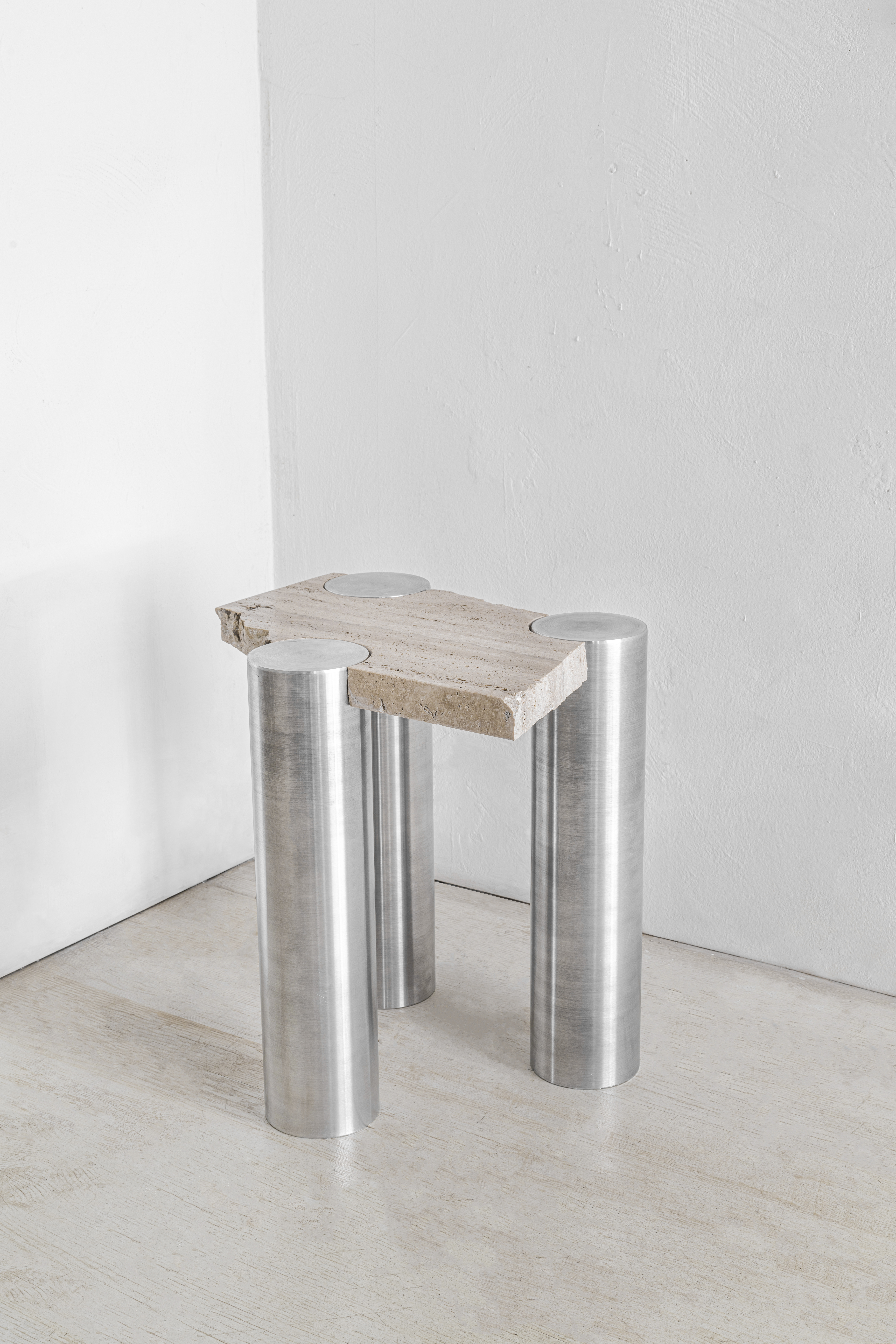
Italy is one of the world’s leading producers of marble. Marble processing is an operation that generates a large quantity of waste, also known as “offcuts,” which vary in type and size. These offcuts originate from the fractures that occur during processing, which are quite common given the nature of the material, or from pieces that remain after processing or extracting a marble piece. The waste resulting from the cutting and processing of stone can range from a minimum of 35% to a maximum of 75% of the physical unit. Therefore, from 100 kg of marble (block) input, only 25 kg of finished product may be obtained, and the remaining 75 kg constitute the waste.
In a country like Italy, where the tradition of marble has a millennia-old history, where stone is born or transported to become sculpture, art and history, the production of waste derived from processing leaves its mark on the ground, defenseless.
In a dialogue of contrasts, collaboration, and sustainability, aluminum embraces marble. It doesn’t disturb, deface, or interfere with the material but rather welcomes and supports it.
The project “Merge” welcomes these remnants and emphasizes their uniqueness. In each piece, the story of the previous narrative remains sculpted. Each piece is an expression of a previous narrative. Matter and transformation. “Merge” is a collection that extends our exploration into material recovery and sustainable design principles.
In addition to the marble, we’ve chosen to use aluminum, which is a 100% recyclable material. In this narrative, the materials showcase their own peculiarities and put them in comparison.
They undress to clothe each other: they are no longer waste but in constant transformation, becoming new material. Materials are shown in their authenticity without any further processes applied. The product is completely handmade in Italy.
*The product is completely handmade in Italy.
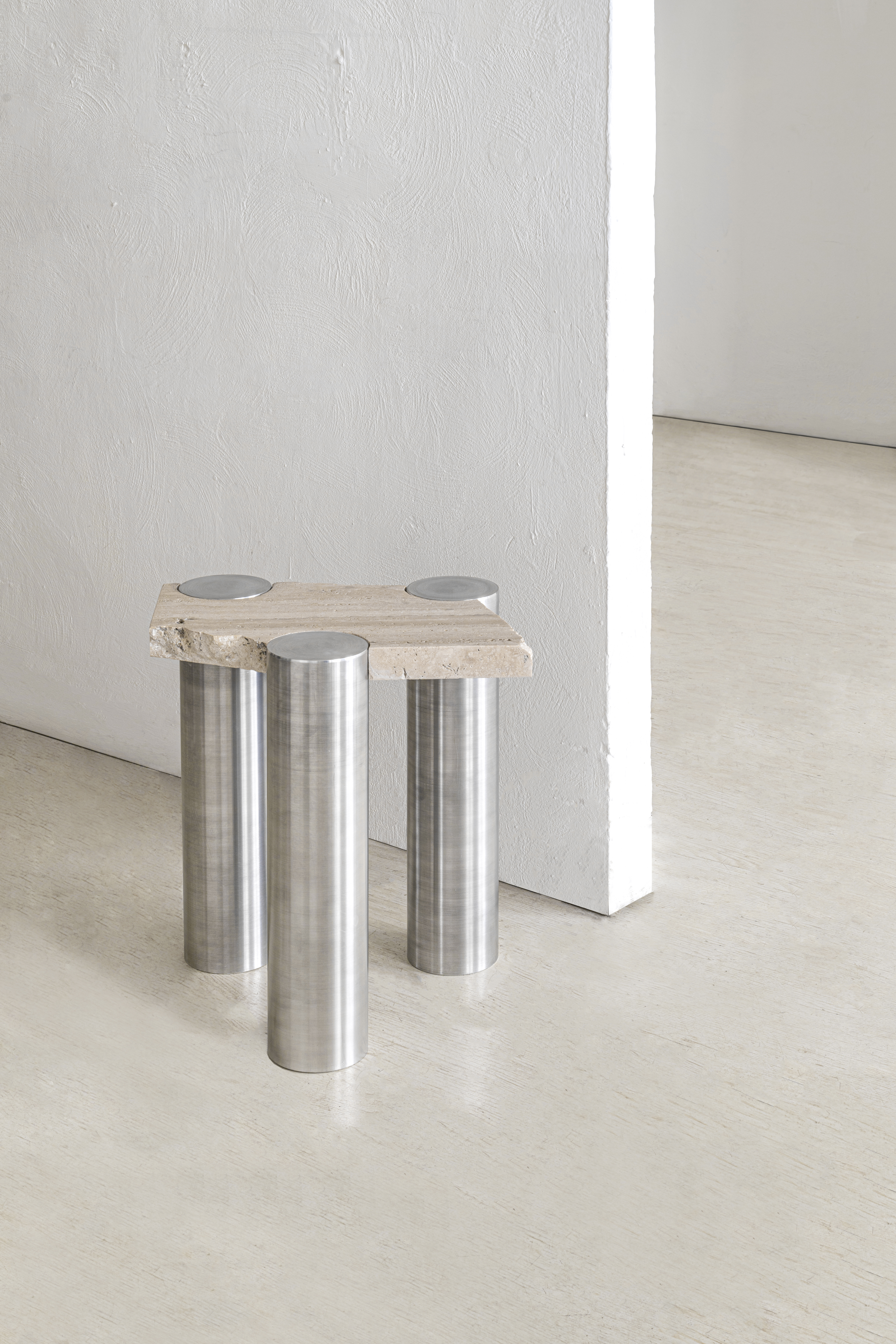
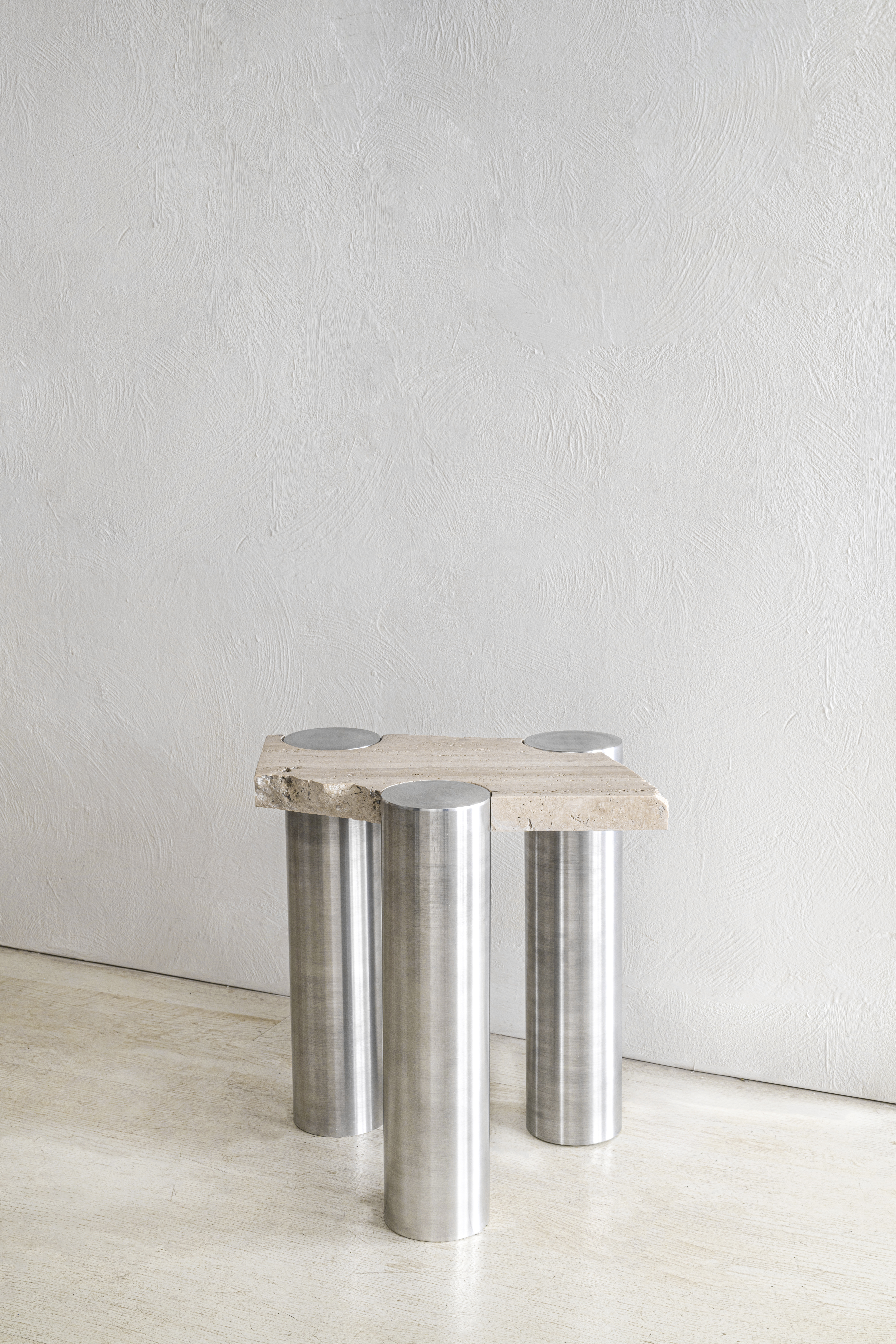
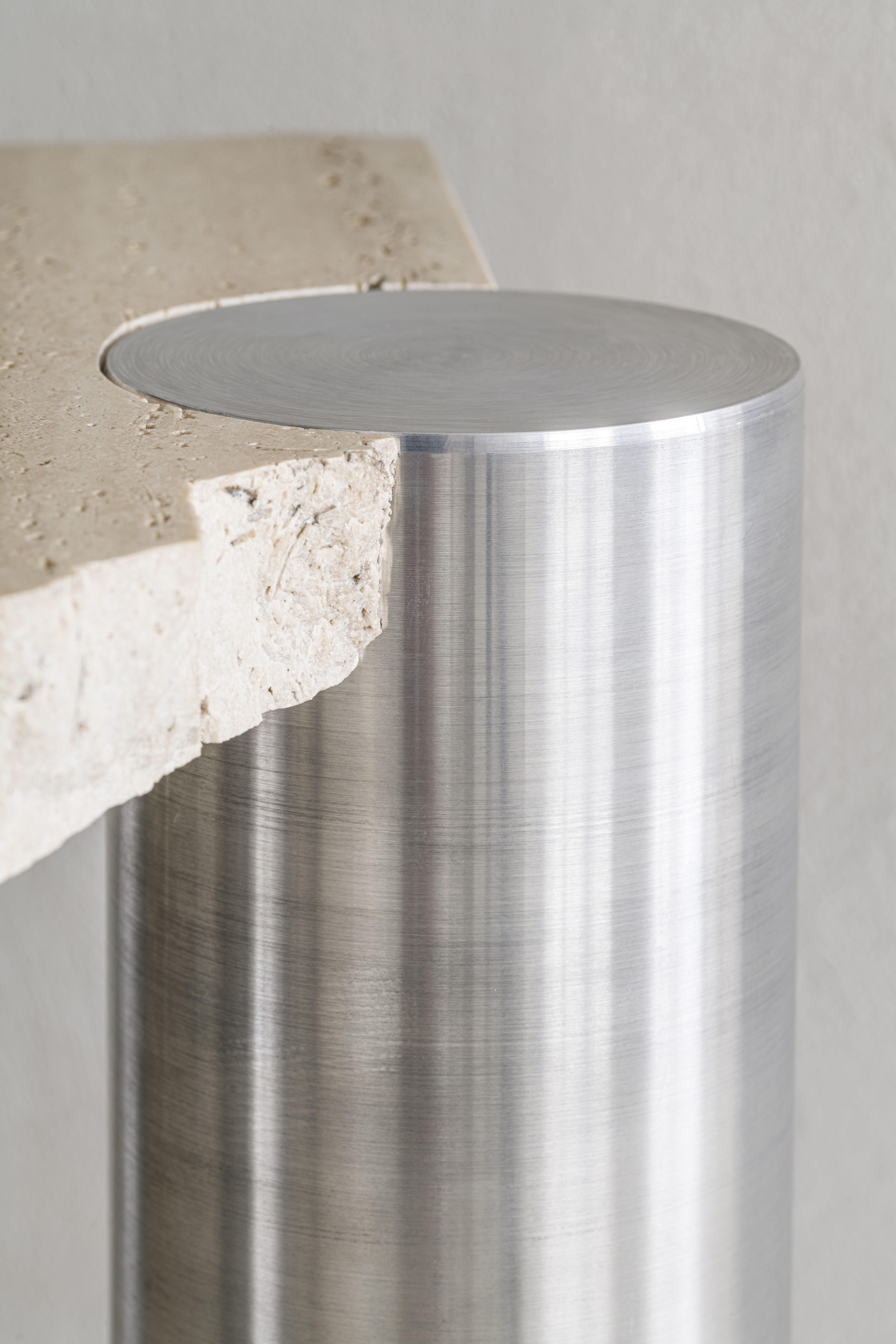
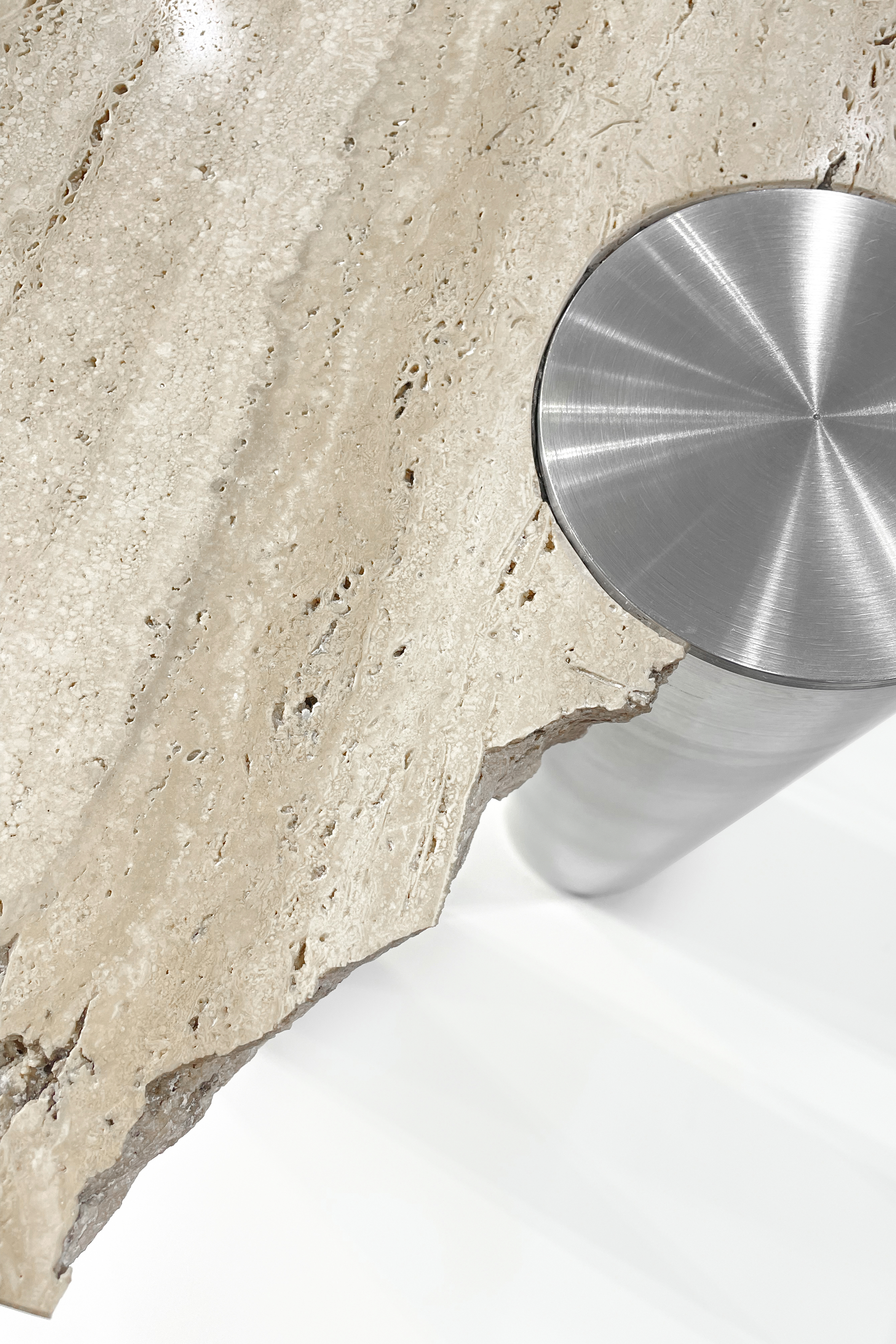
ph: ©Emanuele Chiaverini
2024__CO Series 01__Sculpture/Bookshelf Collectible Design
![]()
![]()
Abandoned forms, rejects of other projects, come back to show themselves in a new life. No more matter in excess but form and essence.
CO Series 01 is an extension of the Cutout project, an aesthetic research on metal shapes that have been cutted out from other projects. Every waste of matter is part of a story.
The variable and free geometries, due to the previous processes, give the sign to each new piece.
![]()
![]()
![]()
![]()
Collectible Design
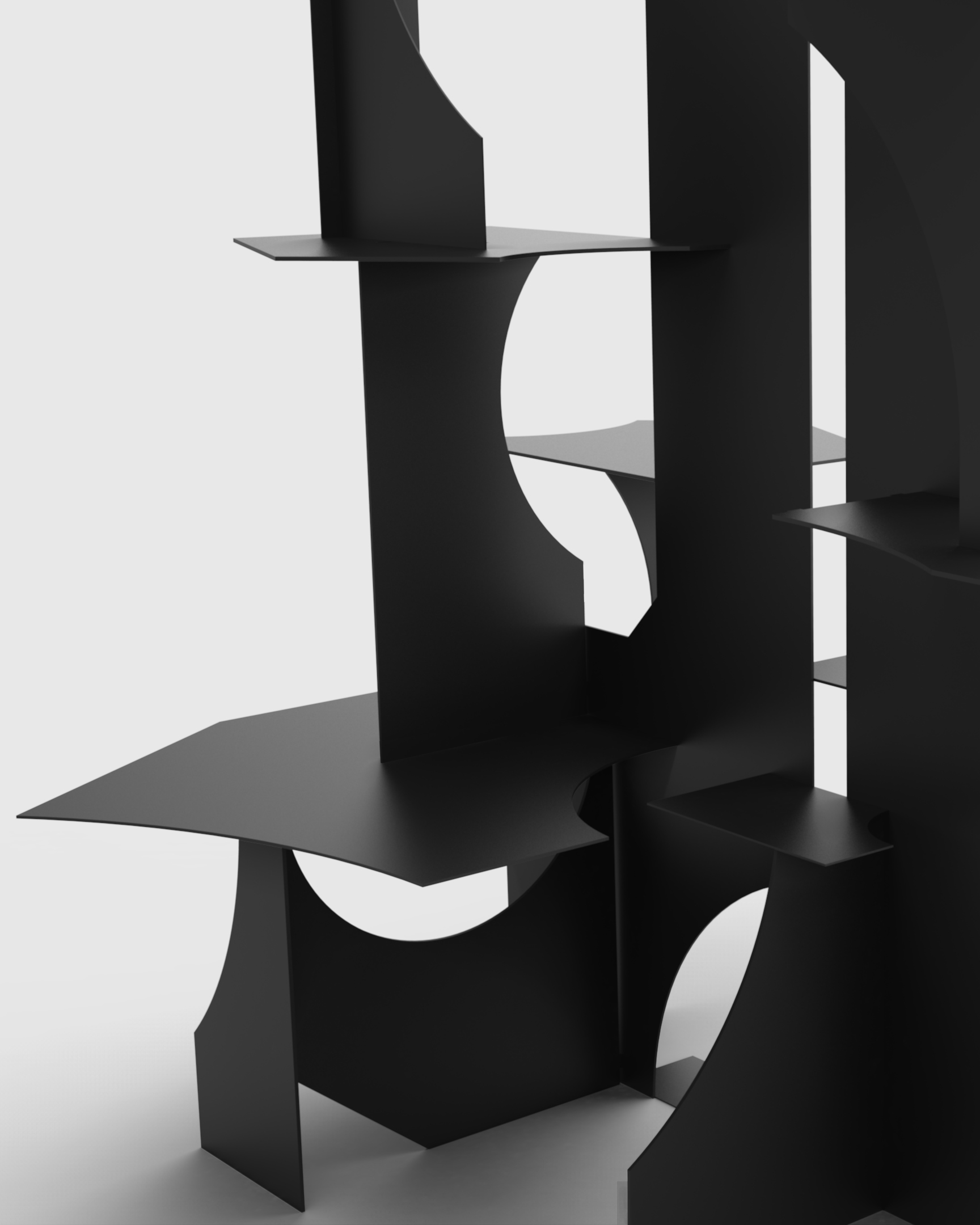
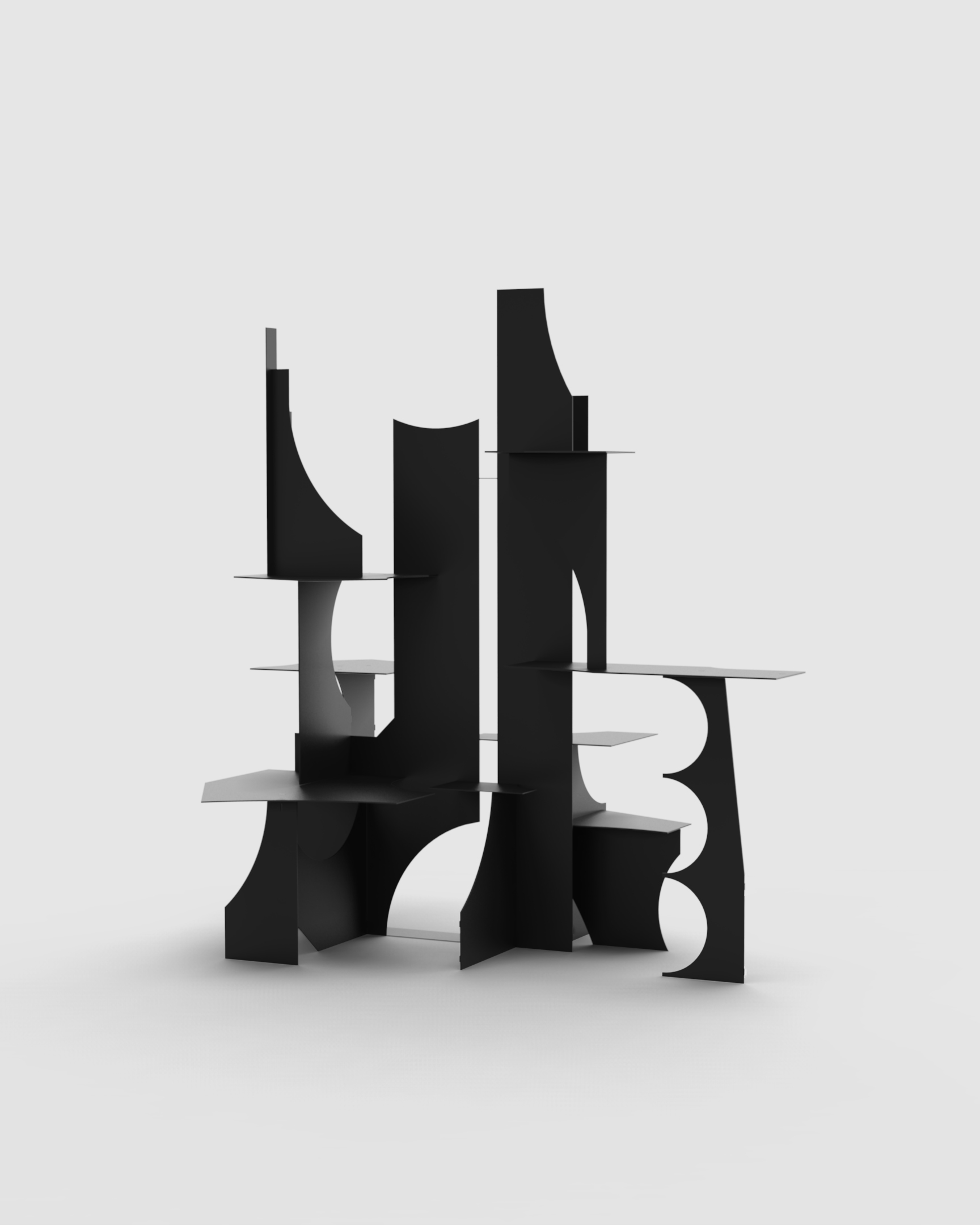
Abandoned forms, rejects of other projects, come back to show themselves in a new life. No more matter in excess but form and essence.
CO Series 01 is an extension of the Cutout project, an aesthetic research on metal shapes that have been cutted out from other projects. Every waste of matter is part of a story.
The variable and free geometries, due to the previous processes, give the sign to each new piece.
*The product is completely handmade in Italy.


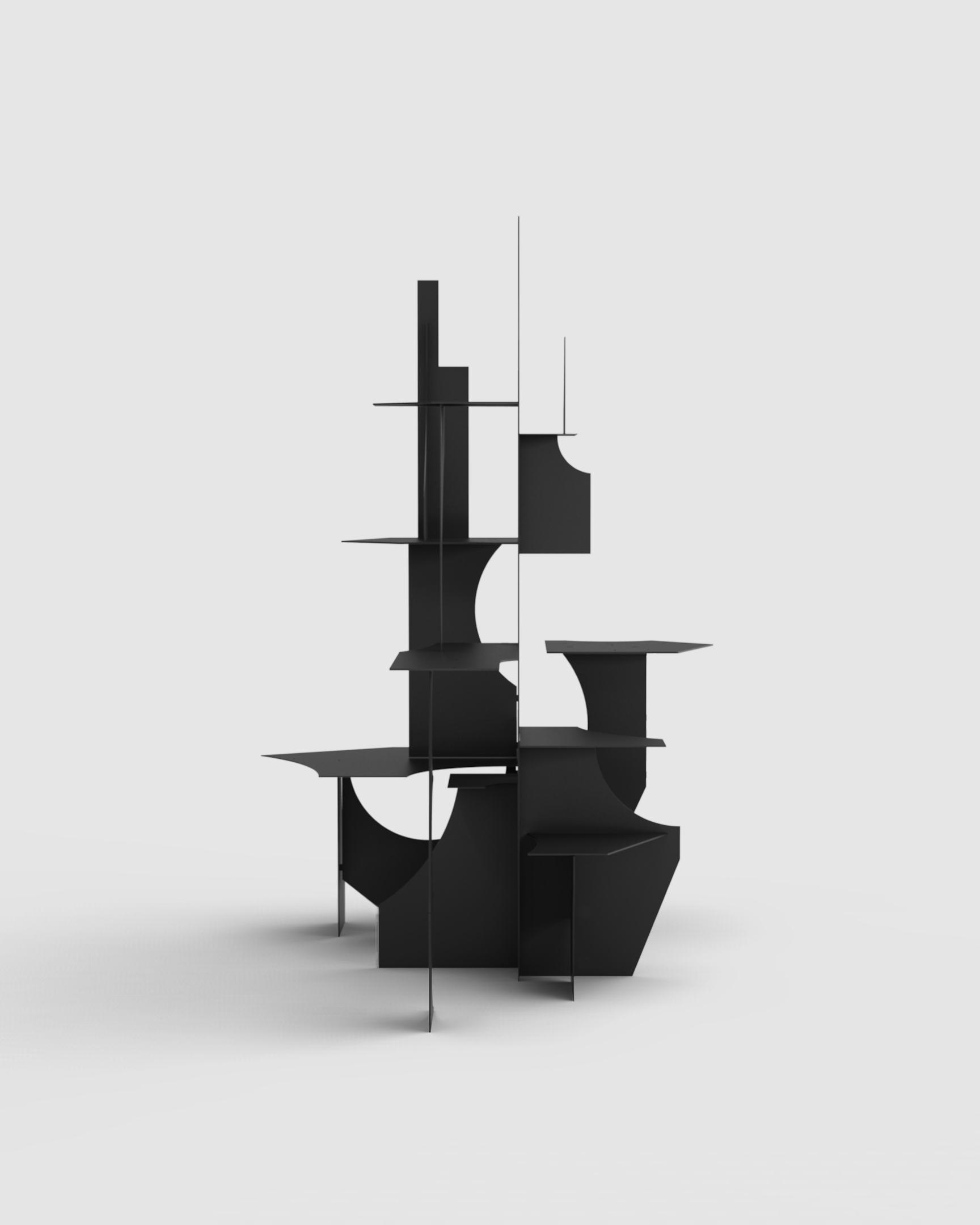

ph: ©Emanuele Chiaverini
2024__Metalique__Side Table Collectible Design
![]()
![]()
Metalique explores the unrepeatable through subtraction.
The hand-turning process becomes both element and tool of narration, passage, and transformation.
The return to the artisanal roots of this ancient decorative technique offers the opportunity to explore a relationship with production whose rhythms are marked by manual dexterity.
Metalique strips the material of its original form with the aim of discovering beauty in absence.
The products of the collection are characterized by absolute uniqueness as they are the result of human labor and processes not entirely controlled. The turned legs appear both firm and dynamic simultaneously, in a play of light that emphasizes the material's profile. The remnants, aluminum shavings left behind during the process, take on their own individuality as remnants of a unified body, laid at its feet.
![]()
![]()
Collectible Design
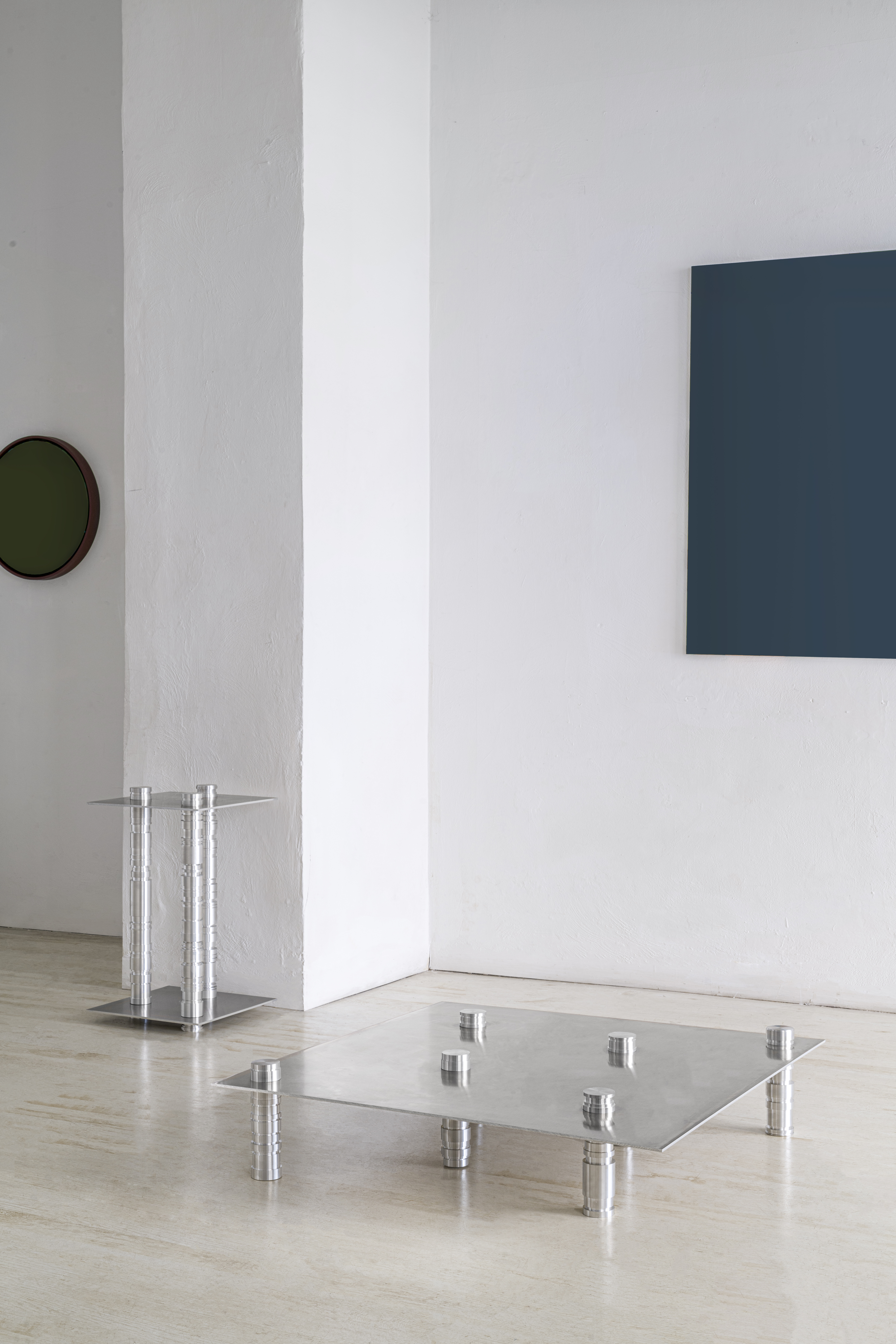
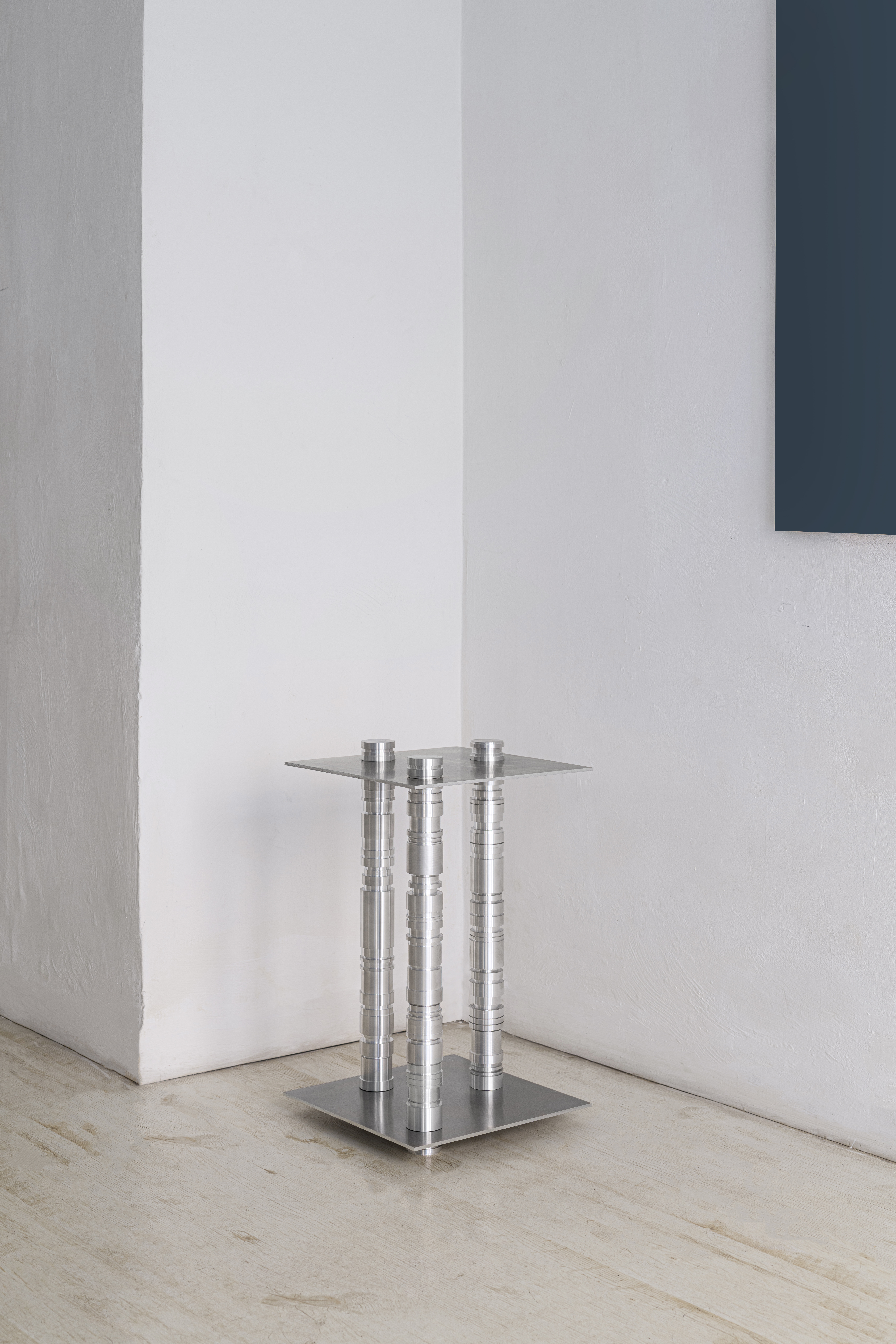
Metalique explores the unrepeatable through subtraction.
What is taken away leaves a mark and emphasizes what remains.
The hand-turning process becomes both element and tool of narration, passage, and transformation.
The return to the artisanal roots of this ancient decorative technique offers the opportunity to explore a relationship with production whose rhythms are marked by manual dexterity.
Metalique strips the material of its original form with the aim of discovering beauty in absence.
The products of the collection are characterized by absolute uniqueness as they are the result of human labor and processes not entirely controlled. The turned legs appear both firm and dynamic simultaneously, in a play of light that emphasizes the material's profile. The remnants, aluminum shavings left behind during the process, take on their own individuality as remnants of a unified body, laid at its feet.
*The product is completely handmade in Italy.


ph: ©Emanuele Chiaverini
2024__Metalique__Coffee Table Collectible Design
![]()
Metalique explores the unrepeatable through subtraction.
The hand-turning process becomes both element and tool of narration, passage, and transformation.
The return to the artisanal roots of this ancient decorative technique offers the opportunity to explore a relationship with production whose rhythms are marked by manual dexterity.
Metalique strips the material of its original form with the aim of discovering beauty in absence.
The products of the collection are characterized by absolute uniqueness as they are the result of human labor and processes not entirely controlled. The turned legs appear both firm and dynamic simultaneously, in a play of light that emphasizes the material's profile. The remnants, aluminum shavings left behind during the process, take on their own individuality as remnants of a unified body, laid at its feet.
![]()
![]()
Collectible Design

Metalique explores the unrepeatable through subtraction.
What is taken away leaves a mark and emphasizes what remains.
The hand-turning process becomes both element and tool of narration, passage, and transformation.
The return to the artisanal roots of this ancient decorative technique offers the opportunity to explore a relationship with production whose rhythms are marked by manual dexterity.
Metalique strips the material of its original form with the aim of discovering beauty in absence.
The products of the collection are characterized by absolute uniqueness as they are the result of human labor and processes not entirely controlled. The turned legs appear both firm and dynamic simultaneously, in a play of light that emphasizes the material's profile. The remnants, aluminum shavings left behind during the process, take on their own individuality as remnants of a unified body, laid at its feet.
*The product is completely handmade in Italy.
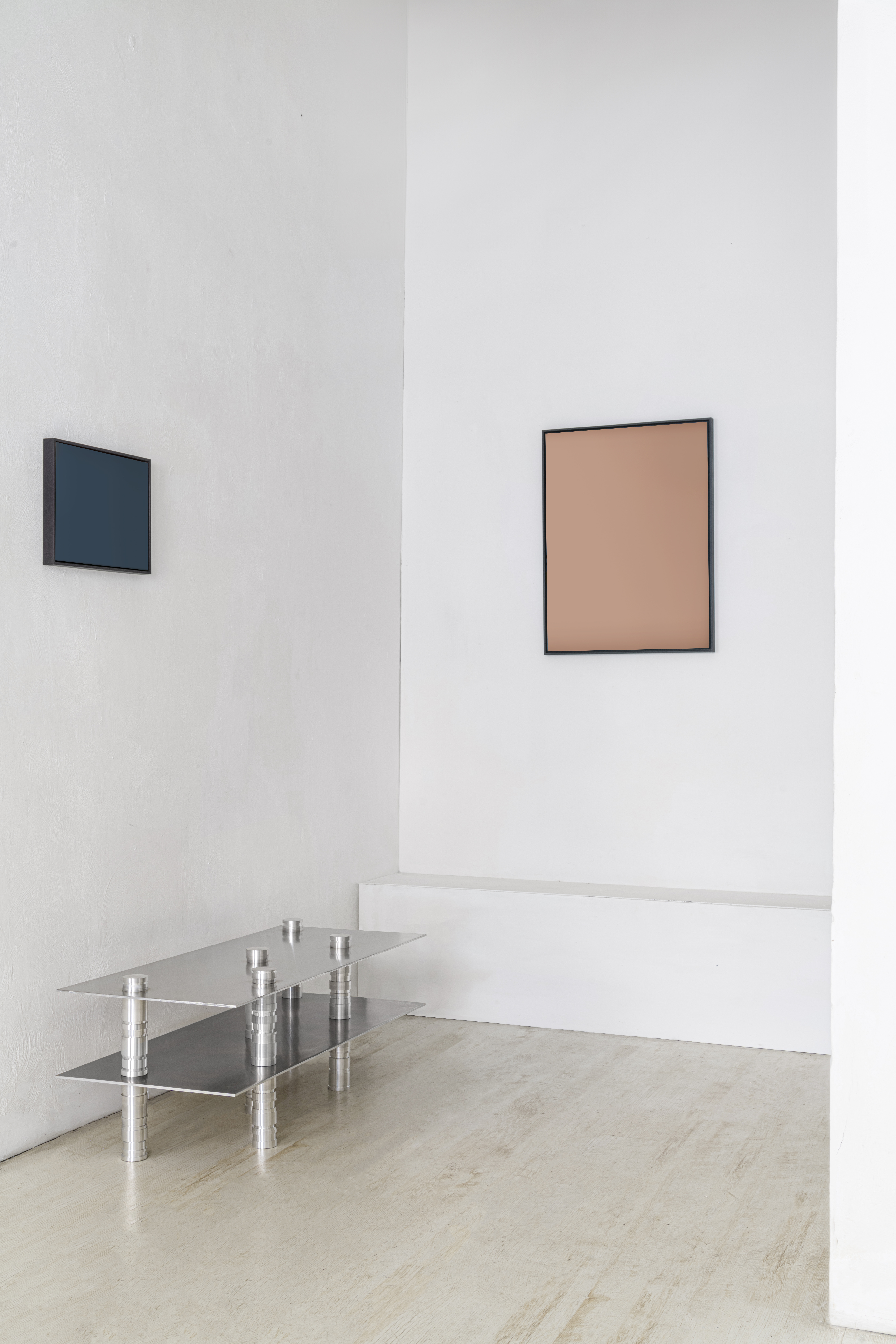
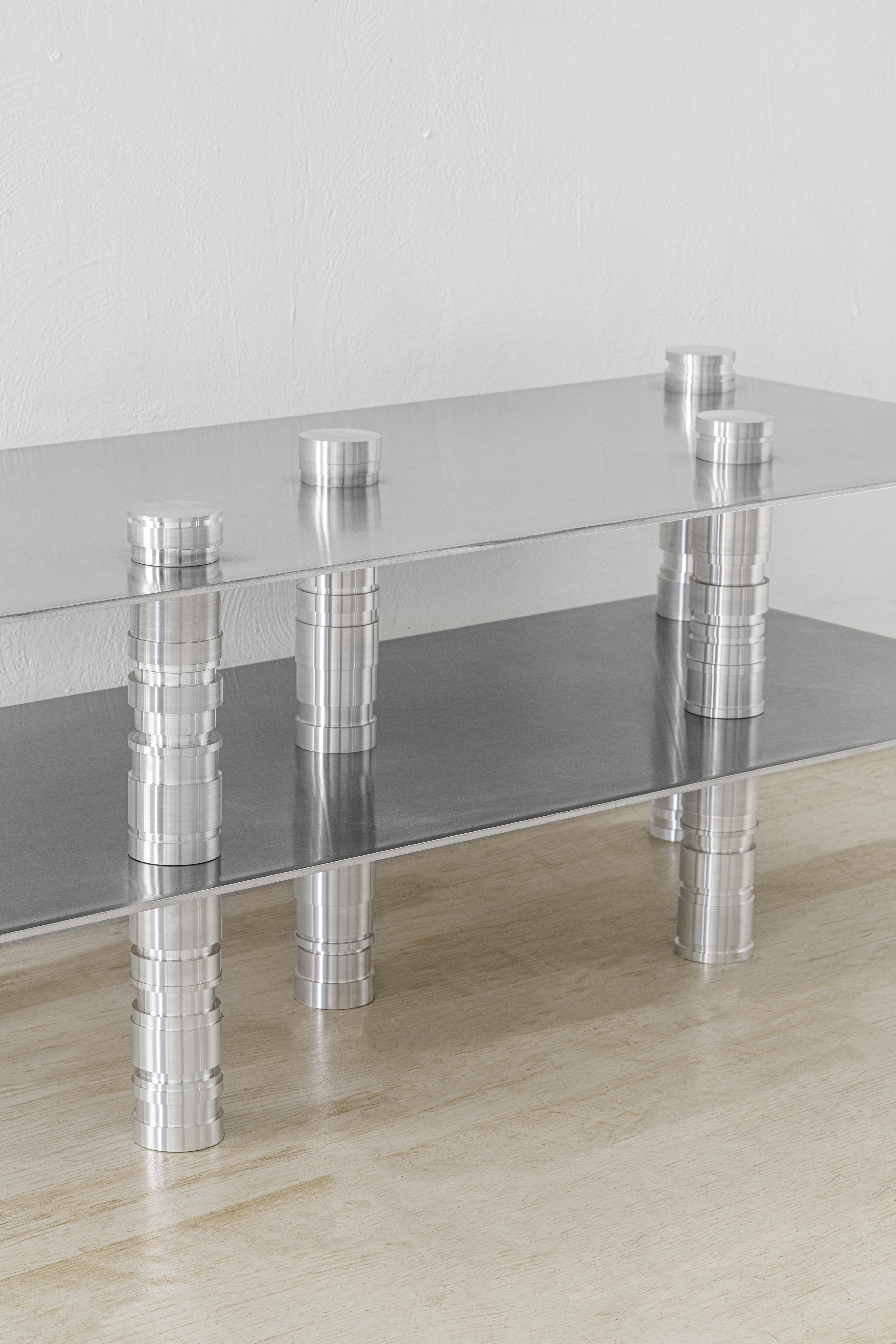
ph: ©Emanuele Chiaverini
2024__Metalique__Low Table Collectible Design
![]()
Metalique explores the unrepeatable through subtraction.
The hand-turning process becomes both element and tool of narration, passage, and transformation.
The return to the artisanal roots of this ancient decorative technique offers the opportunity to explore a relationship with production whose rhythms are marked by manual dexterity.
Metalique strips the material of its original form with the aim of discovering beauty in absence.
The products of the collection are characterized by absolute uniqueness as they are the result of human labor and processes not entirely controlled. The turned legs appear both firm and dynamic simultaneously, in a play of light that emphasizes the material's profile. The remnants, aluminum shavings left behind during the process, take on their own individuality as remnants of a unified body, laid at its feet.
![]()
![]()
![]()
![]()
Collectible Design
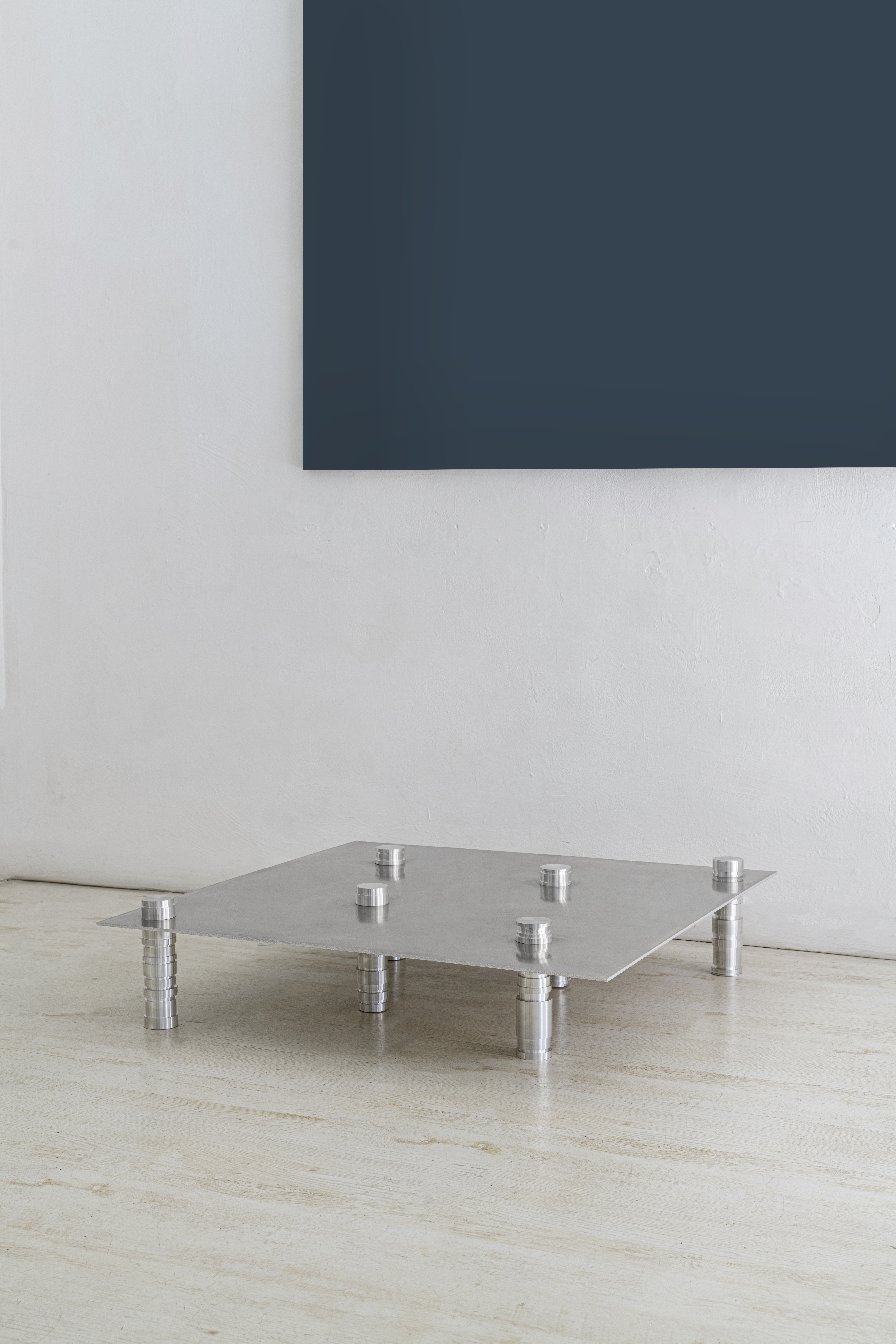
Metalique explores the unrepeatable through subtraction.
What is taken away leaves a mark and emphasizes what remains.
The hand-turning process becomes both element and tool of narration, passage, and transformation.
The return to the artisanal roots of this ancient decorative technique offers the opportunity to explore a relationship with production whose rhythms are marked by manual dexterity.
Metalique strips the material of its original form with the aim of discovering beauty in absence.
The products of the collection are characterized by absolute uniqueness as they are the result of human labor and processes not entirely controlled. The turned legs appear both firm and dynamic simultaneously, in a play of light that emphasizes the material's profile. The remnants, aluminum shavings left behind during the process, take on their own individuality as remnants of a unified body, laid at its feet.
*The product is completely handmade in Italy.




ph: ©Emanuele Chiaverini
2021__Alter__Studio F Design Collaborations
![]()
Declare the intrinsic strength of the form, in order to make it essential and functional to itself.
“Classic” geometrics and volumes capable of leading us on the course of continuous research and cultural connection between past, present and future.
Investigating the current concept of aggregation, "Alter" becomes the formal representation of the multiplicity, diversity and complexity of tangible and intangible connections to which we are very familiar today.
The idea of the project is to develop a product that is a sign of our times, but which at the same time can extend cultural and social meanings and values, even after years.
Studio F focuses its work on the importance of solid wood and its recovery. The selected wood is a centennial Cedar charred with the Japanese technique of Shou Sugi Ban.
"Alter" wants to be the expression of a broken down and unstructured coffee table, modifying the formal and canonical image of the elements that contribute to the construction of a table. "Alter" is a "fluid" product in which the concept of "leg" and "floor" is lost.
An "other" table that evolves in its simplicity, becoming an emblem of bond, support, aggregation and comparison for distinct elements. The top loses its function as a surface above the legs, to become a welcoming line. Each element of "Alter" acquires its own identity but at the same time is a fundamental part in the construction of the whole, contributing to its balance, its union and essence.
Design: Millim Studio
![]()
![]()
![]()
Design Collaborations
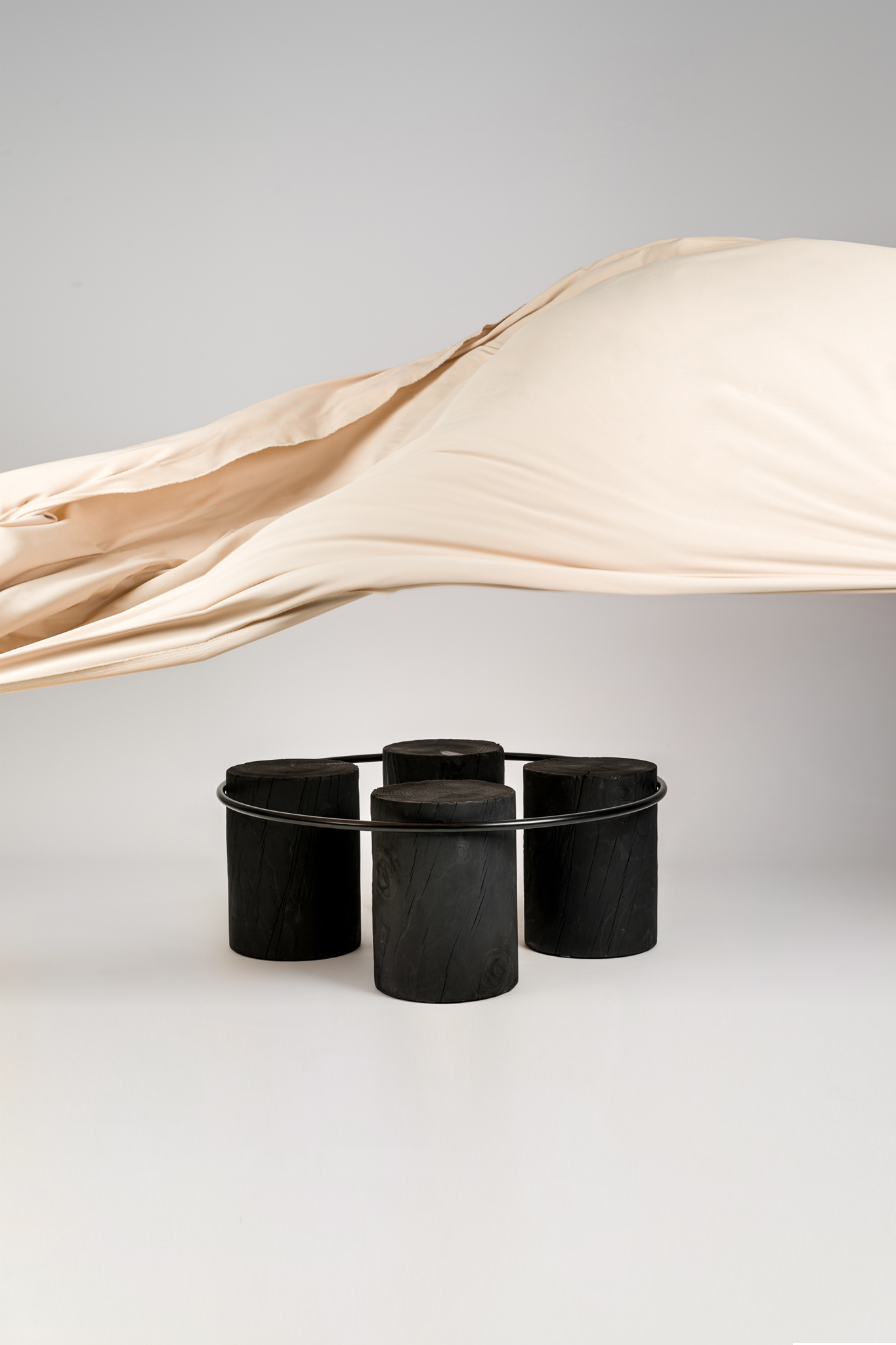
Declare the intrinsic strength of the form, in order to make it essential and functional to itself.
“Classic” geometrics and volumes capable of leading us on the course of continuous research and cultural connection between past, present and future.
Investigating the current concept of aggregation, "Alter" becomes the formal representation of the multiplicity, diversity and complexity of tangible and intangible connections to which we are very familiar today.
The idea of the project is to develop a product that is a sign of our times, but which at the same time can extend cultural and social meanings and values, even after years.
Studio F focuses its work on the importance of solid wood and its recovery. The selected wood is a centennial Cedar charred with the Japanese technique of Shou Sugi Ban.
"Alter" wants to be the expression of a broken down and unstructured coffee table, modifying the formal and canonical image of the elements that contribute to the construction of a table. "Alter" is a "fluid" product in which the concept of "leg" and "floor" is lost.
An "other" table that evolves in its simplicity, becoming an emblem of bond, support, aggregation and comparison for distinct elements. The top loses its function as a surface above the legs, to become a welcoming line. Each element of "Alter" acquires its own identity but at the same time is a fundamental part in the construction of the whole, contributing to its balance, its union and essence.
Design: Millim Studio
Production: Studio F
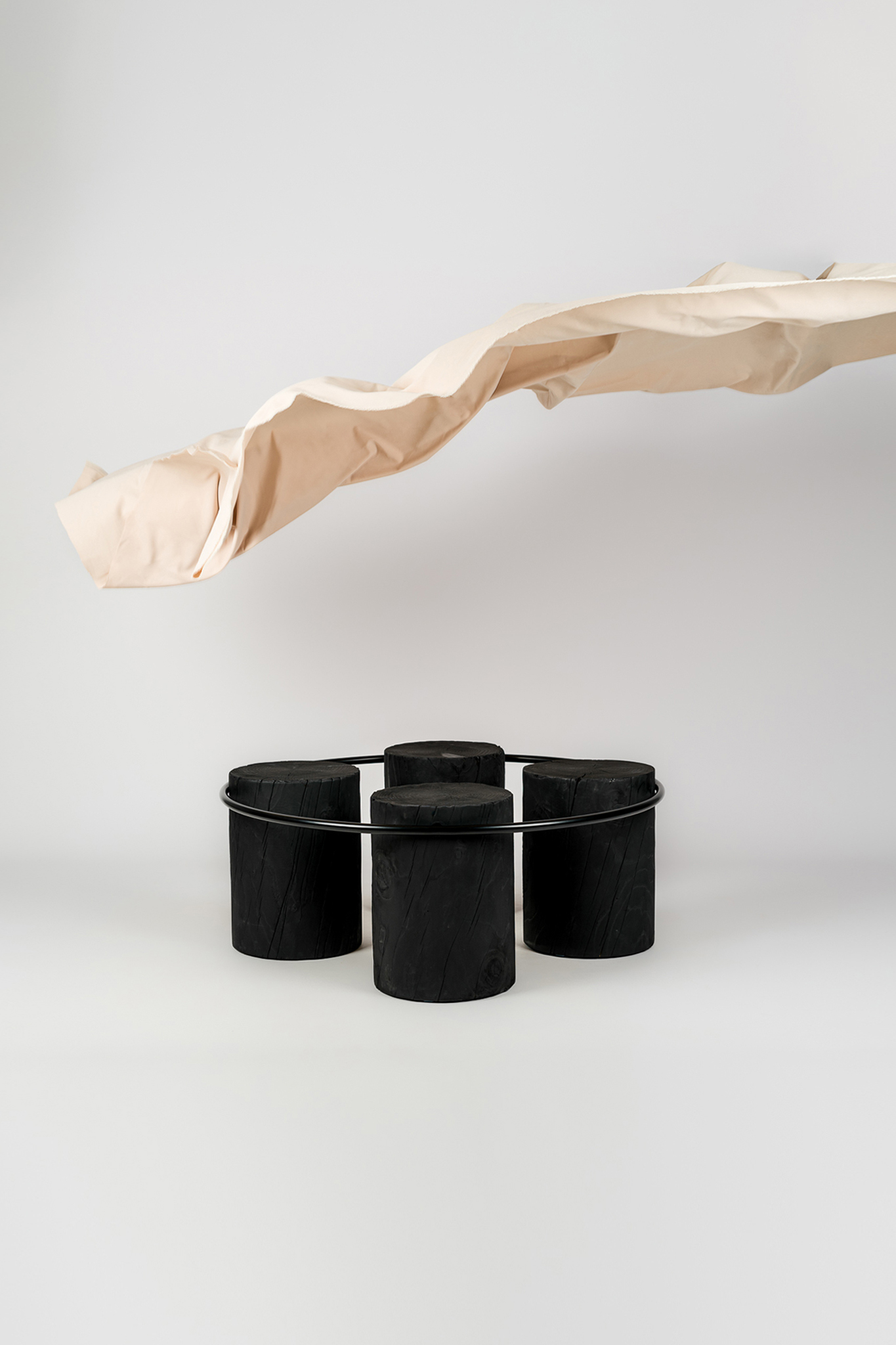
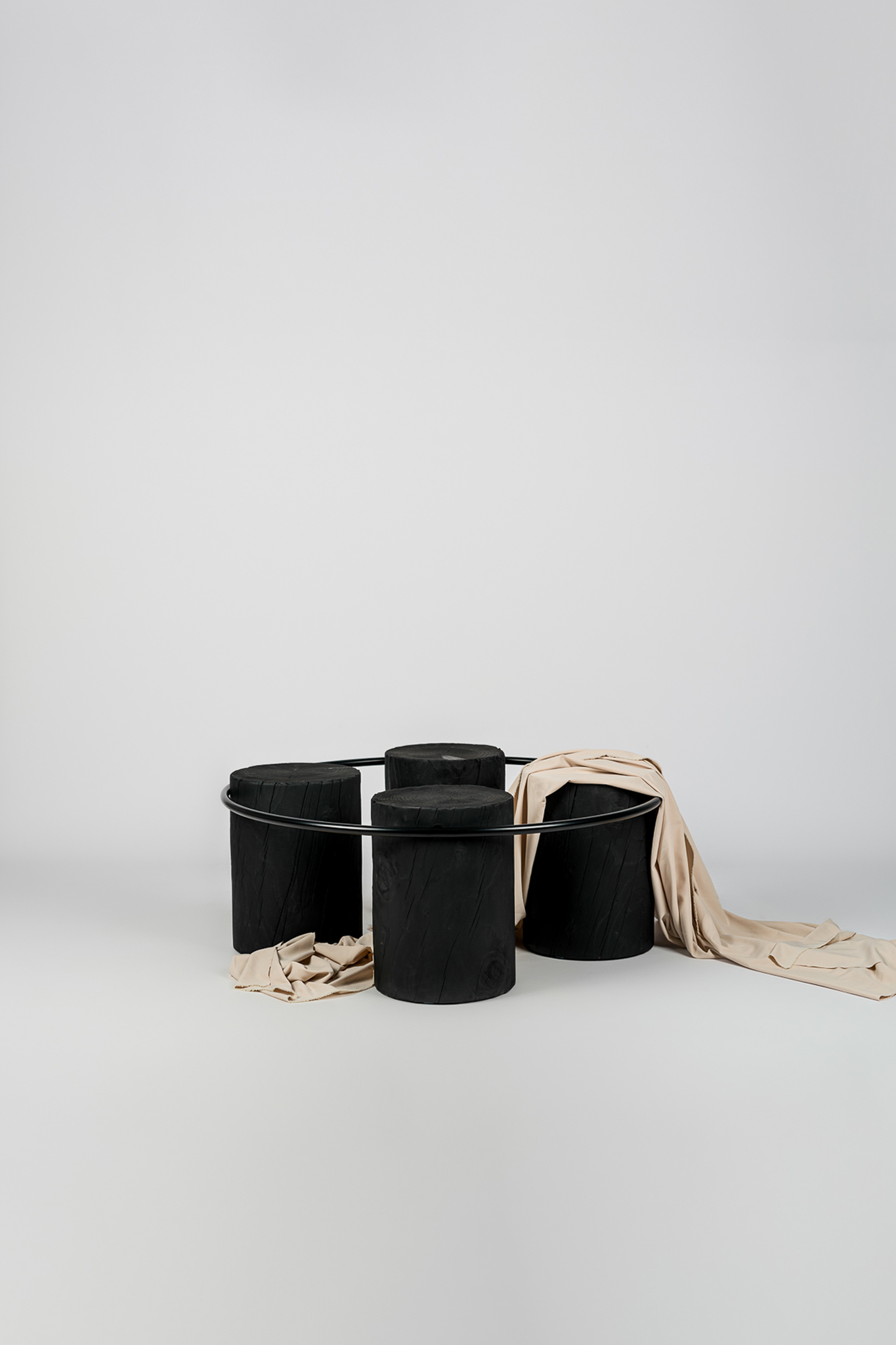
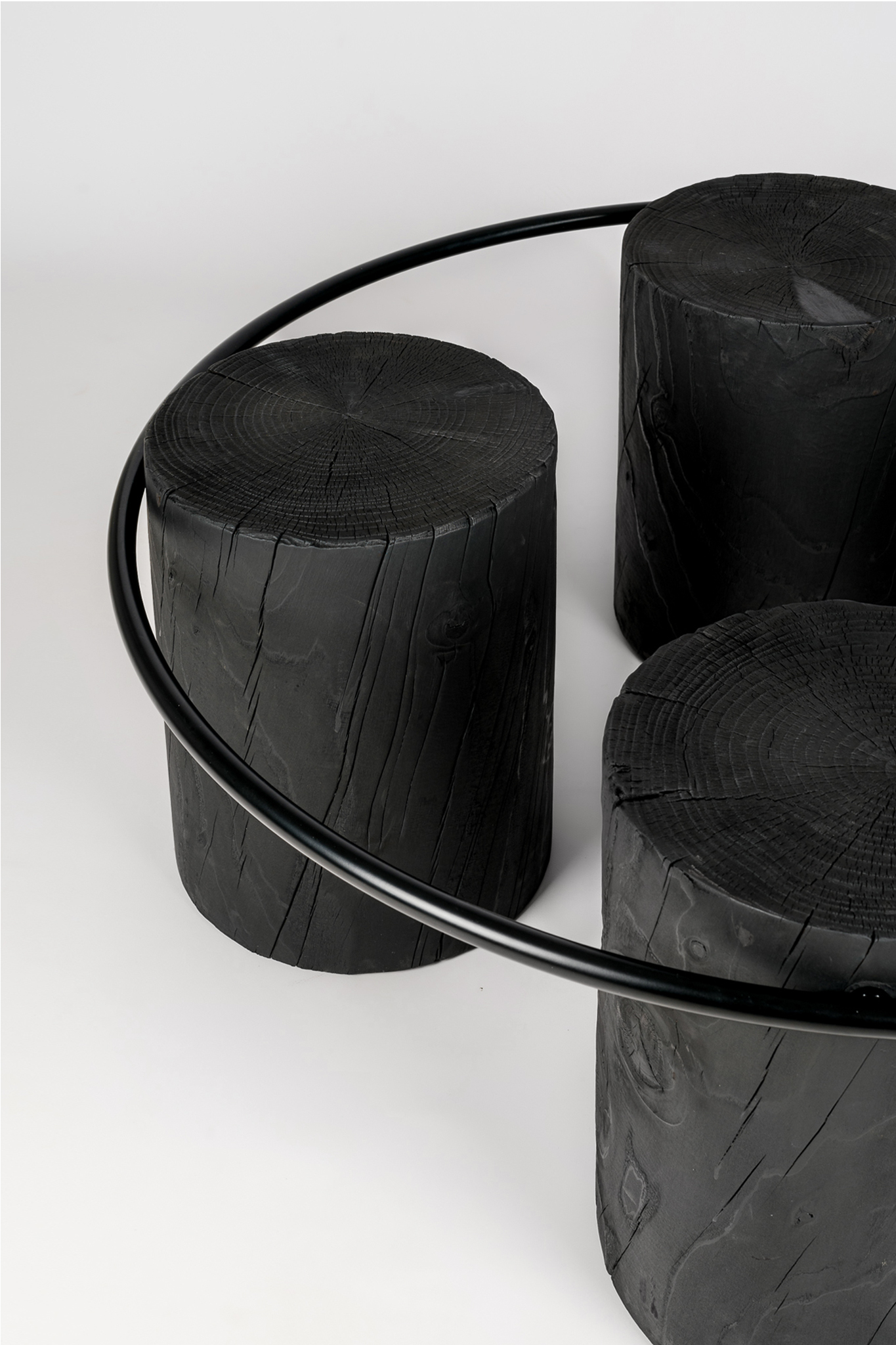
ph: ©Emanuele Chiaverini
2019__Fusion__Secondome Gallery Design Collaborations
![]()
Wallpaper* Awards
The marble becomes an embracing “mother”.
The matter withdraws to leave space for another matter.
As a magnifying glass, huge transparent cylinders, cross and reveal the heart of marble, mixing with it. The tale of a fusion, where empty and full mix up.
![]()
![]()
![]()
Design Collaborations

Wallpaper* Awards
ph: ©Matthew Donaldson
The marble becomes an embracing “mother”.
The matter withdraws to leave space for another matter.
As a magnifying glass, huge transparent cylinders, cross and reveal the heart of marble, mixing with it. The tale of a fusion, where empty and full mix up.
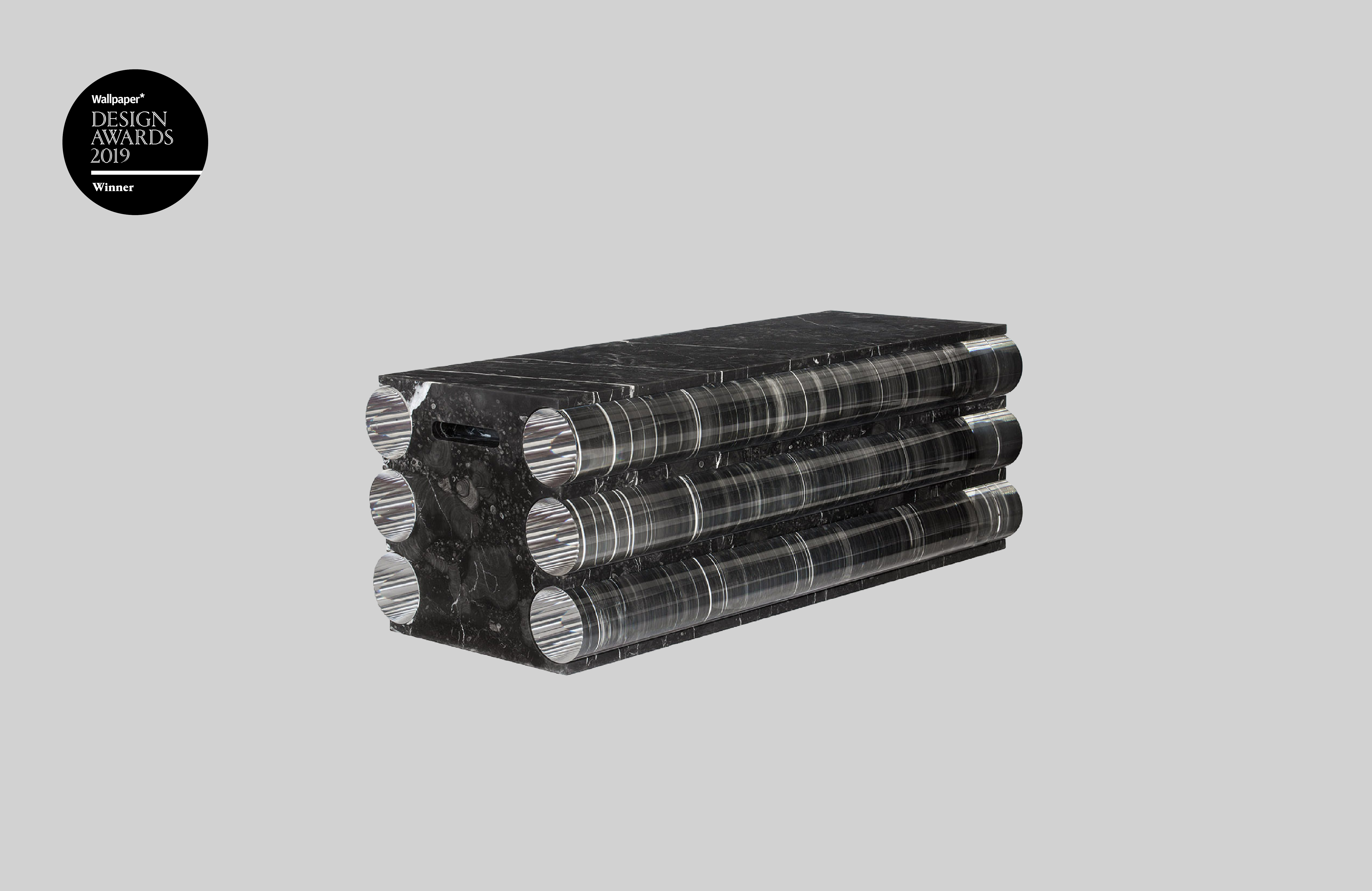

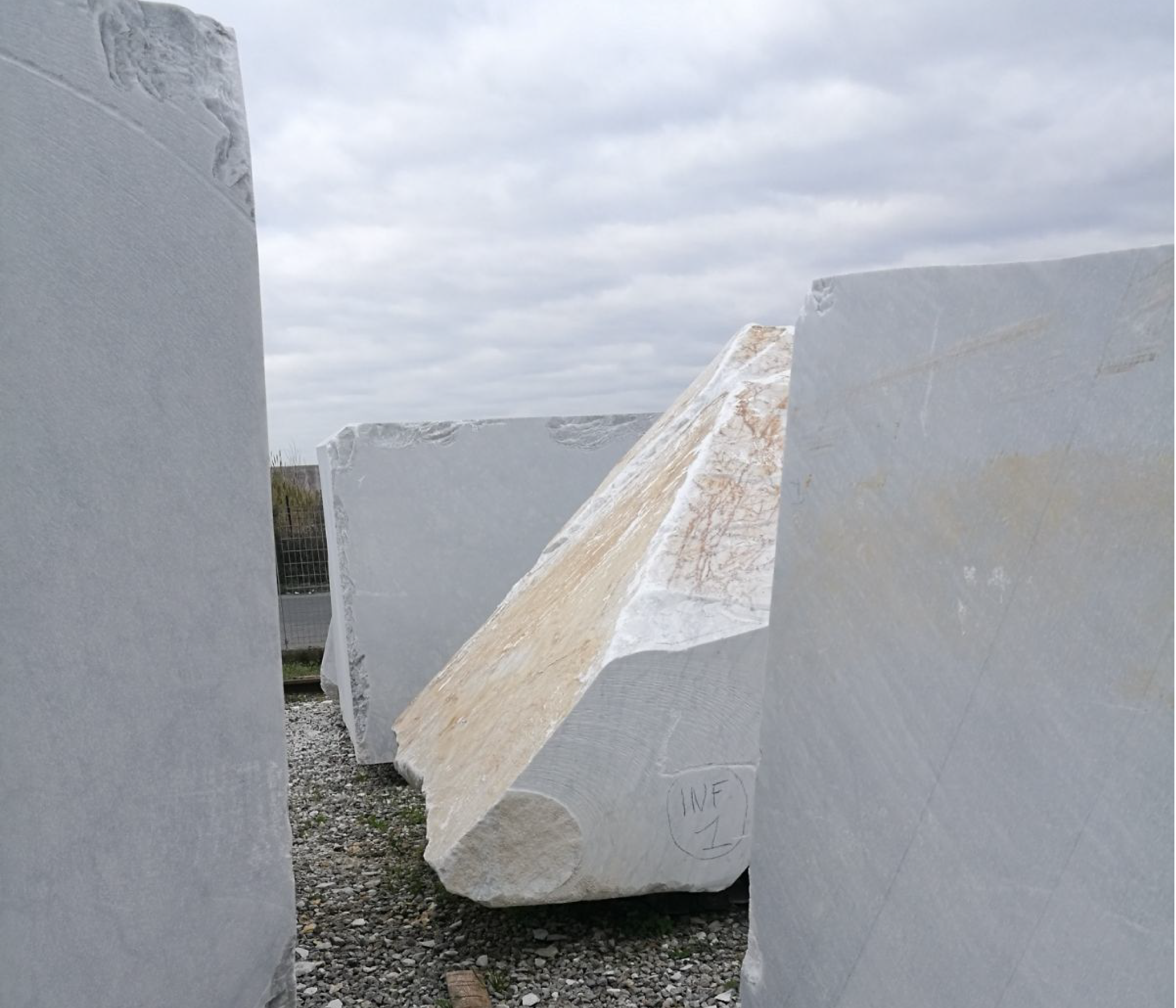
ph: ©Serena Eller / ©Matthew Donaldson
2019__S.U.P.__Luisaviaroma Design Collaborations
![]()
![]()
The collection S.U.P. lives of visual and tactile impulses. "Poor" and precious materials are processed entirely by hand; foam and brass are put in close relationship; colors, geometries and texts tell the desire for freedom, movement and change.
Discover, Universe, Revolution, Your Mind are the words chosen to describe this desire.
Four products live in relation to each other and carry the message that has been entrusted to them.
Discover coffee table
Discovering movement and game between flexible material and rigid material. Six foam columns are entrusted to support brass plates. The "cage" is just a mental state.
Universe home décor
A universe to be observed and contemplated. Sparkling and iconic, the object lets itself be watched.
Revolution sitting
Revolution is the synthesis of S.U.P. a sitting without restrictions on use or on positions. A seat without brakes, free and constantly moving.
Your Mind flag
The flag, an iconic and evocative object, is the emblem of every revolution. Its communicative power is unchanged over time. Expressing a thought and our own social/group identity is a great exercise of freedom.
![]()
![]()
![]()
![]()
Design Collaborations
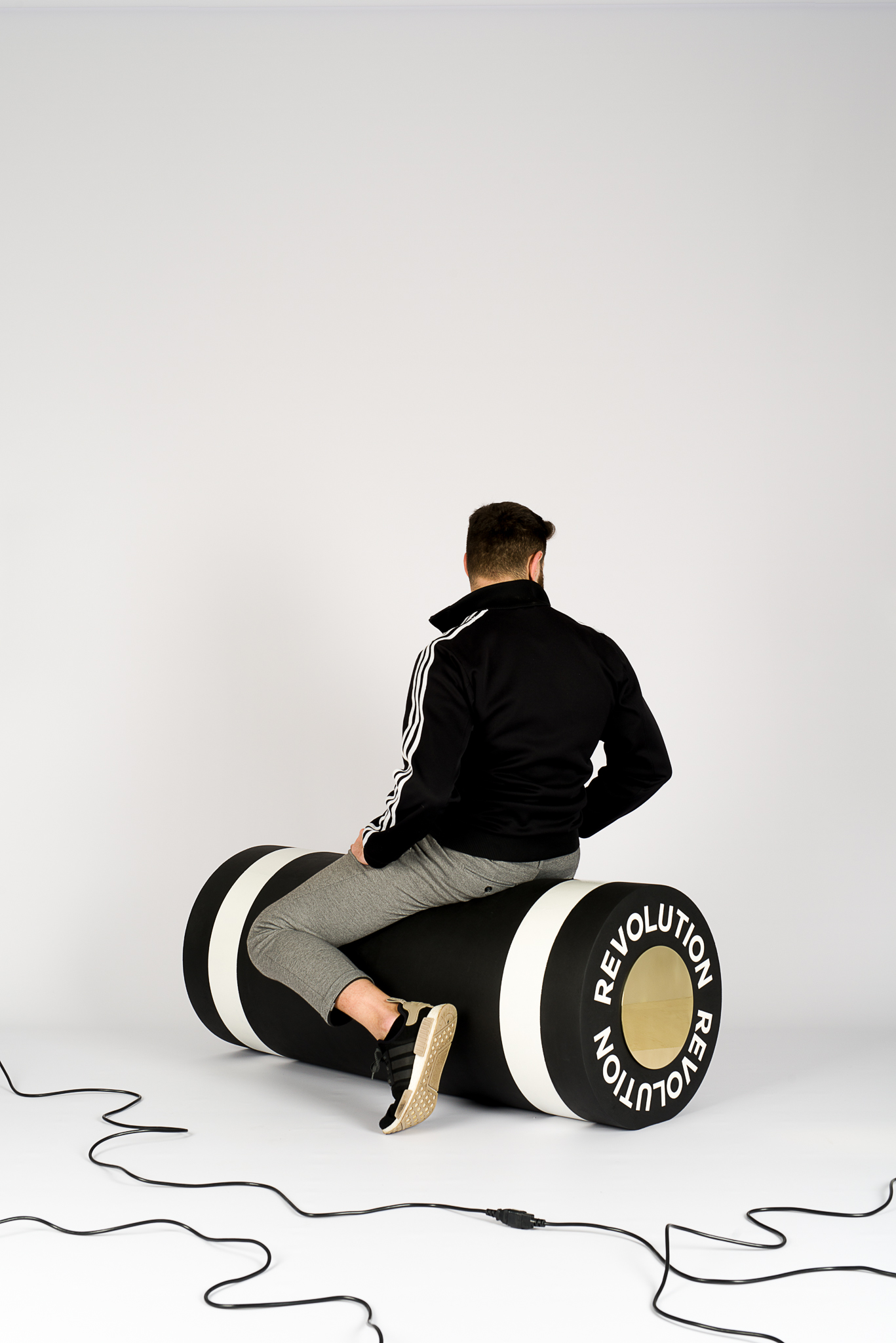
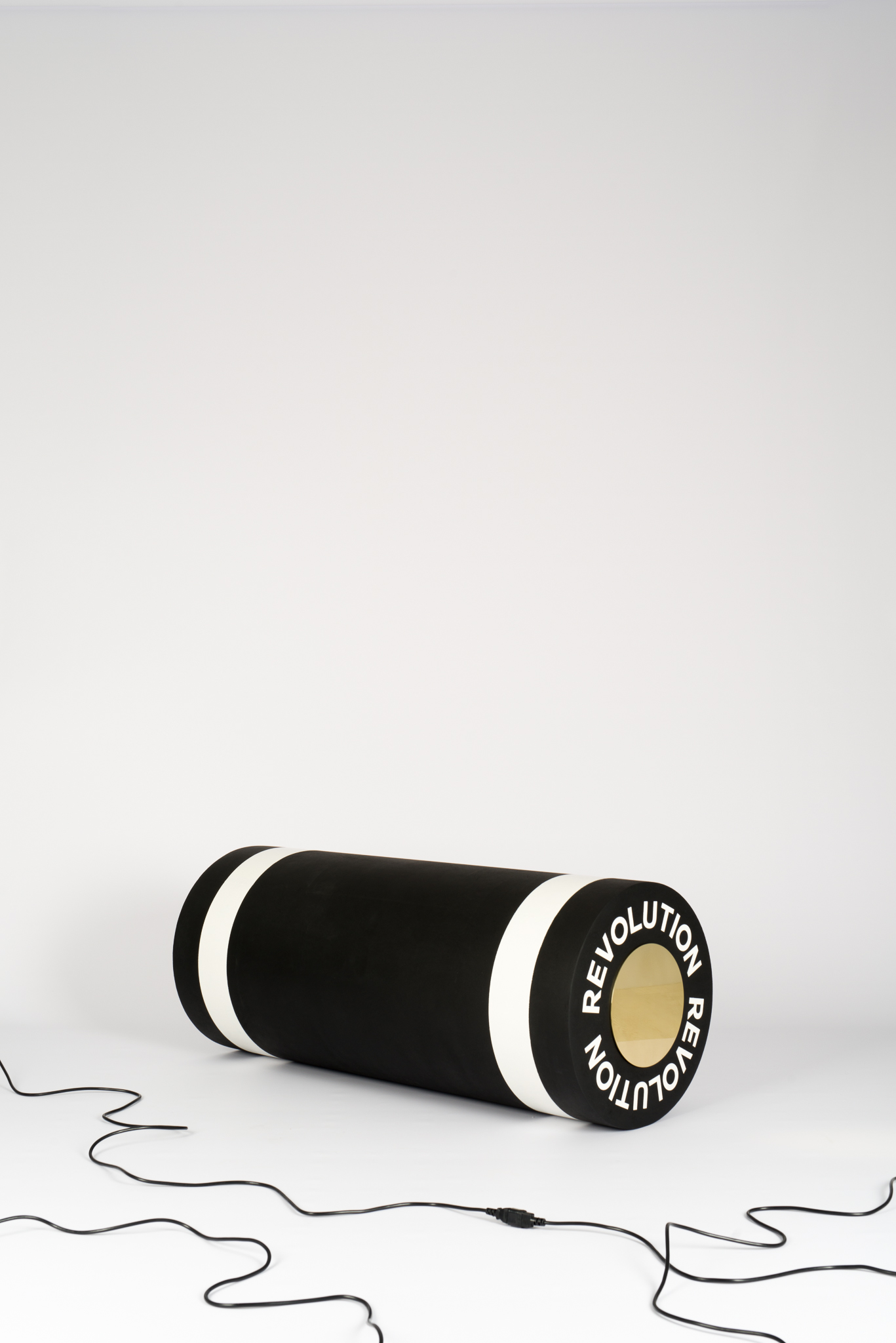
The collection S.U.P. lives of visual and tactile impulses. "Poor" and precious materials are processed entirely by hand; foam and brass are put in close relationship; colors, geometries and texts tell the desire for freedom, movement and change.
Discover, Universe, Revolution, Your Mind are the words chosen to describe this desire.
Four products live in relation to each other and carry the message that has been entrusted to them.
Discover coffee table
Discovering movement and game between flexible material and rigid material. Six foam columns are entrusted to support brass plates. The "cage" is just a mental state.
Universe home décor
A universe to be observed and contemplated. Sparkling and iconic, the object lets itself be watched.
Revolution sitting
Revolution is the synthesis of S.U.P. a sitting without restrictions on use or on positions. A seat without brakes, free and constantly moving.
Your Mind flag
The flag, an iconic and evocative object, is the emblem of every revolution. Its communicative power is unchanged over time. Expressing a thought and our own social/group identity is a great exercise of freedom.


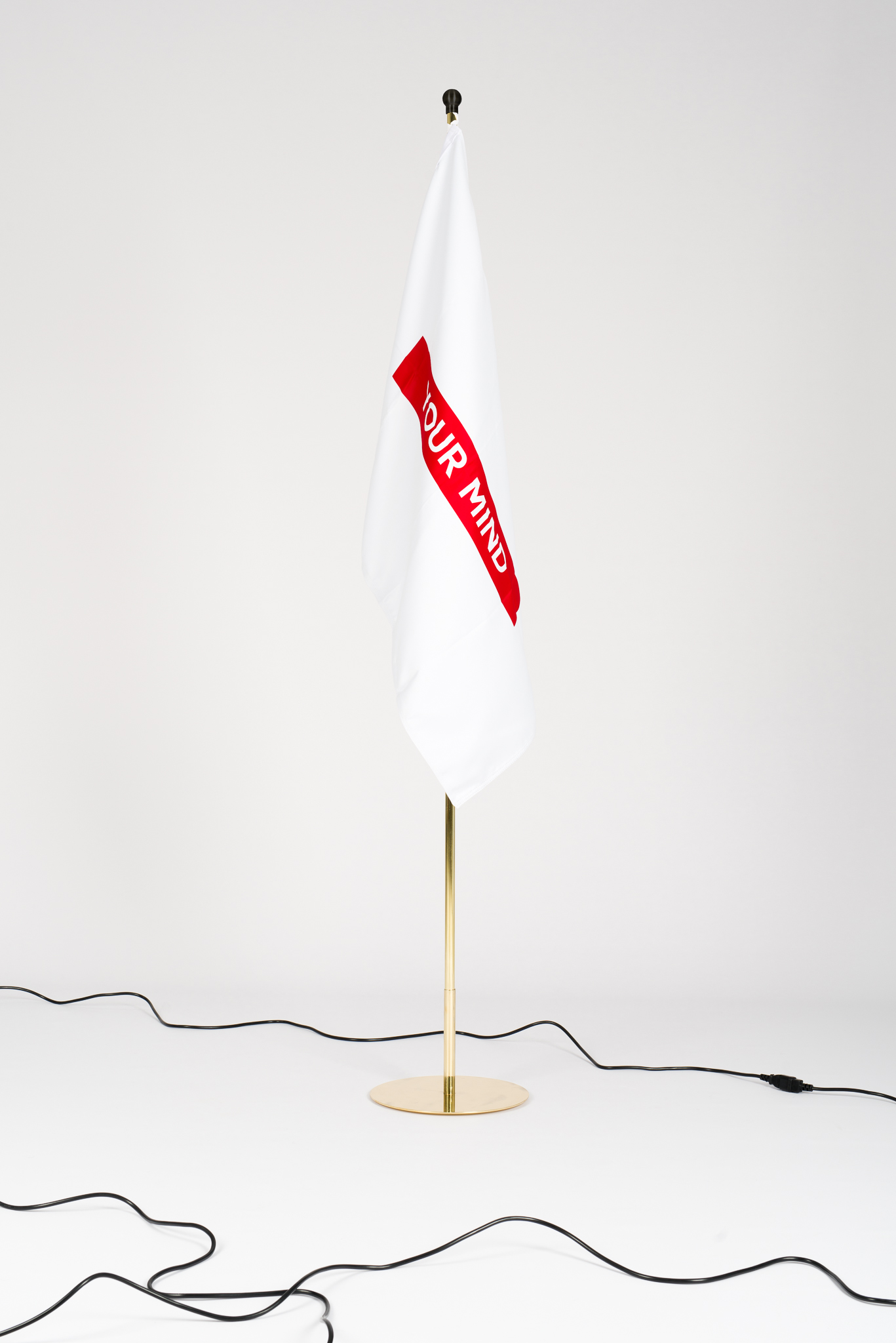

ph: ©Emanuele Chiaverini
2018__Glitch__Secondome Gallery Design Collaborations
![]()
Unplugged - mdw 2018
![]()
The febrifugal plants, that cover the background, contrast the short-lived fault in the system which causes the“glitch”. In this arrangement that turns a wall into a painting, Millim studio explore the fault as potential beauty.
![]()
Design Collaborations

Unplugged - mdw 2018
c/o LADIES & GENTLEMEN
a project by Secondome Gallery + P:S Design Consultants
ph: ©Serena Eller

The febrifugal plants, that cover the background, contrast the short-lived fault in the system which causes the“glitch”. In this arrangement that turns a wall into a painting, Millim studio explore the fault as potential beauty.

ph: ©Serena Eller
2024__Thema__Baranzate Ateliers Exhibitions
![]()
![]()
![]()
Thema
Millim Studio during Milan Design Week 2024, presents CO SERIES 01 created exclusively for Thema and showcased at Baranzate Ateliers.
CO SERIES 01 is the first of a series of sculptures/functional objects that continue the aesthetic exploration of the 'Cutout' project. This research focuses on metal shapes that have been cut out from previous projects.
![]()
![]()
![]()
![]()
![]()
![]()
Exhibitions



Thema
Baranzate Ateliers
Milan Design Week 2024
Milan, Italy
ph: ©Amber Vanbossel
Millim Studio during Milan Design Week 2024, presents CO SERIES 01 created exclusively for Thema and showcased at Baranzate Ateliers.
CO SERIES 01 is the first of a series of sculptures/functional objects that continue the aesthetic exploration of the 'Cutout' project. This research focuses on metal shapes that have been cut out from previous projects.






2024__Metalique__Label201 Exhibitions
![]()
![]()
Label201 Gallery
The hand-turning process becomes both element and tool of narration, passage, and transformation. The return to the artisanal roots of this ancient decorative technique offers the opportunity to explore a relationship with production whose rhythms are marked by manual dexterity. Metalique strips the material of its original form with the aim of discovering beauty in absence.
The products of the collection are characterized by absolute uniqueness as they are the result of human labor and processes not entirely controlled. The turned legs appear both firm and dynamic simultaneously, in a play of light that emphasizes the material's profile. The remnants, aluminum shavings left behind during the process, take on their own individuality as remnants of a unified body, laid at its feet. Metalique explores the irrepeatable through subtraction. What is taken away leaves a mark and emphasizes what remains.
![]()
![]()
![]()
![]()
Exhibitions


Label201 Gallery
Rome, Italy
ph: ©Flavia Rossi
The hand-turning process becomes both element and tool of narration, passage, and transformation. The return to the artisanal roots of this ancient decorative technique offers the opportunity to explore a relationship with production whose rhythms are marked by manual dexterity. Metalique strips the material of its original form with the aim of discovering beauty in absence.
The products of the collection are characterized by absolute uniqueness as they are the result of human labor and processes not entirely controlled. The turned legs appear both firm and dynamic simultaneously, in a play of light that emphasizes the material's profile. The remnants, aluminum shavings left behind during the process, take on their own individuality as remnants of a unified body, laid at its feet. Metalique explores the irrepeatable through subtraction. What is taken away leaves a mark and emphasizes what remains.

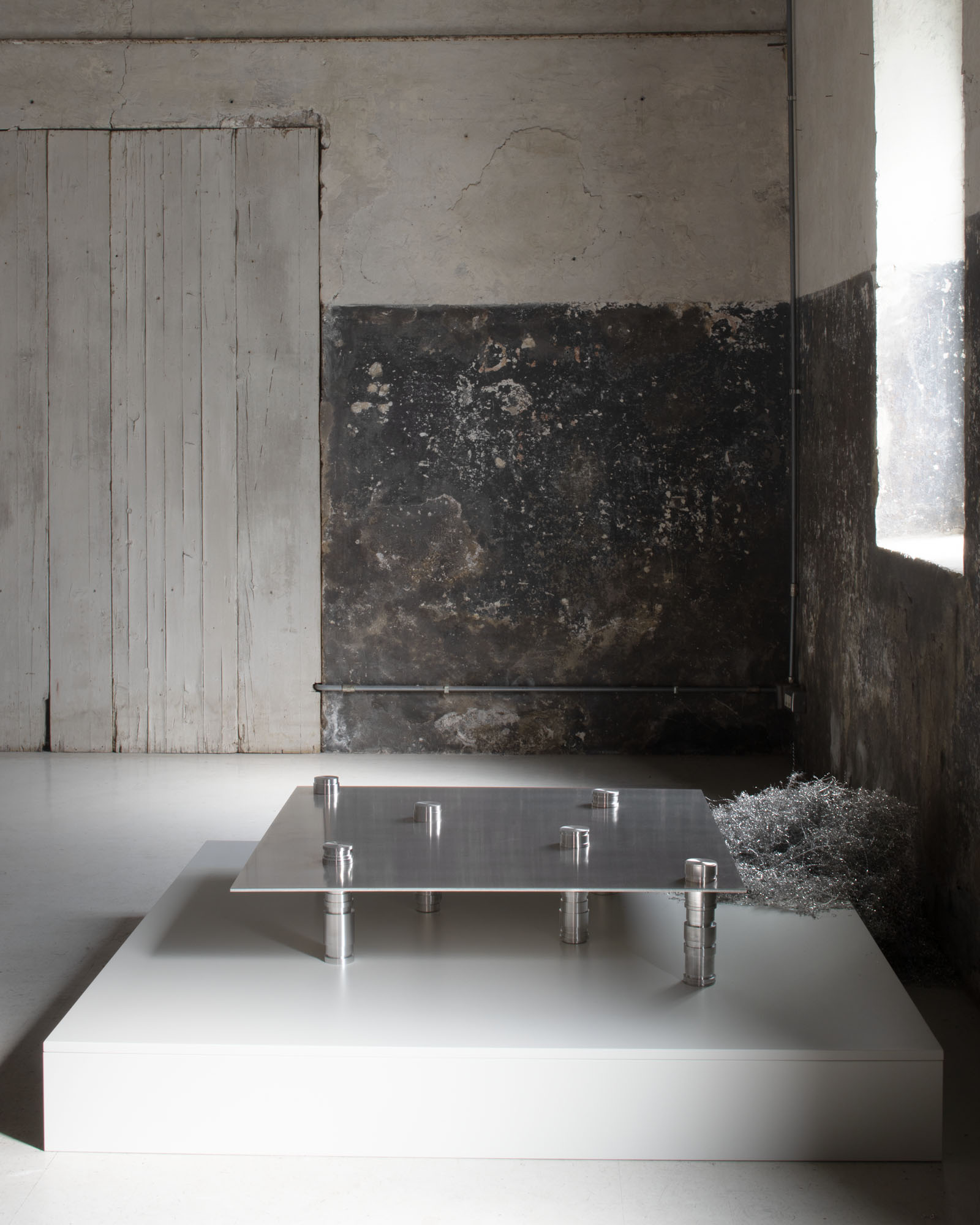
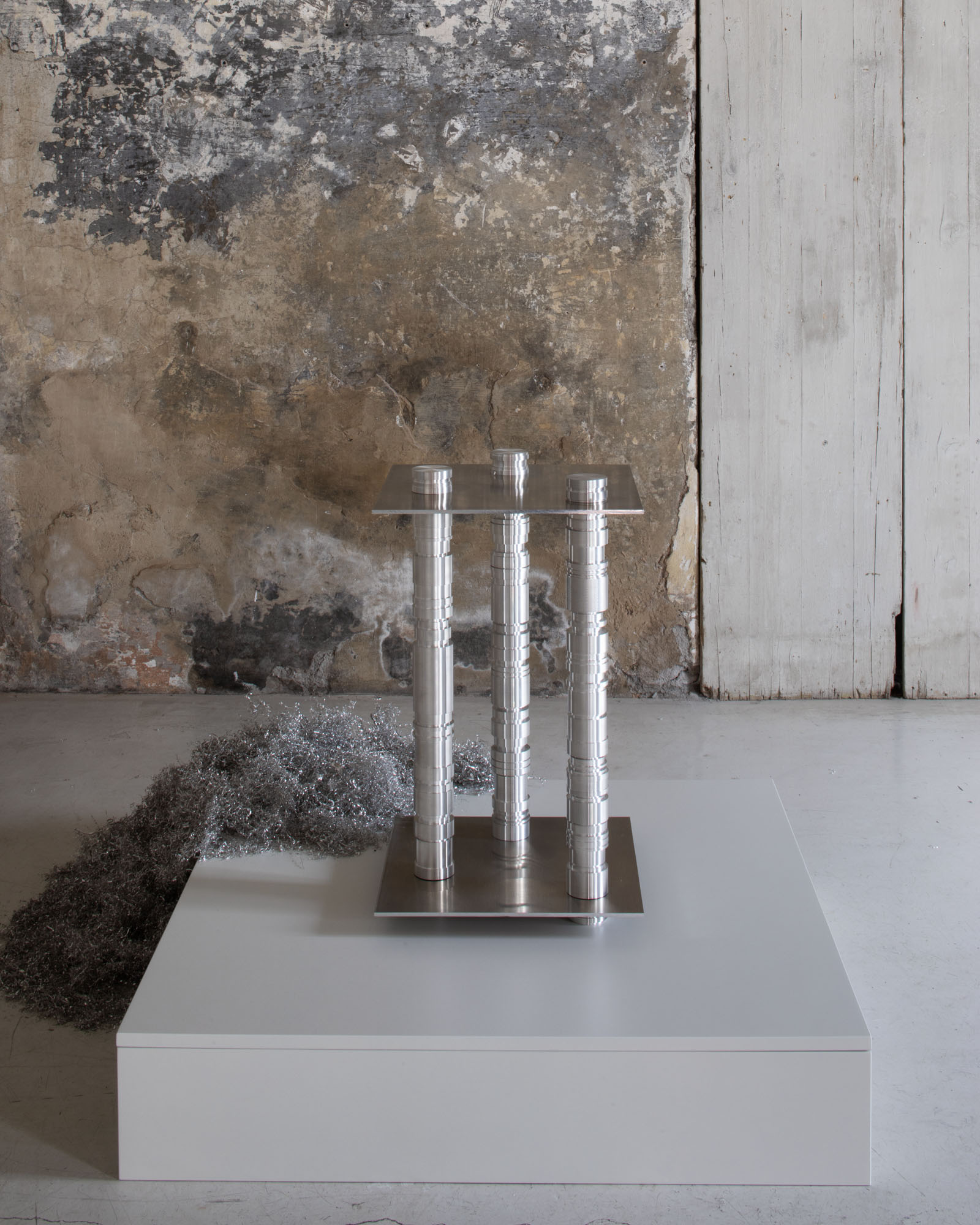

2024__HKDI Gallery__Hong Kong Exhibitions
![]()
![]()
![]()
![]()
![]()
HKDI Gallery
“Italy: a New Collective Landscape” the exhibition dedicated to Italian designers under 35, opens in Hong Kong at HKDI Gallery and begins its journey around the world.
The curator of the exhibition, produced by ADI Design Museum is Angela Rui along with Elisabetta Donati de Conti and Matilde Losi. The graphic design is by Alice Zani with Paola Bombelli and the set design is by Parasite 2.0
ITALY: A New Collective Landscape is an overview of one hundred young Italian designers under-35 from which the overall image emerges as a plural and feasible model of society, where the notion of commoning draws on a myriad of new negotiations. Virtuous ways of thinking, being and producing, committed to giving back more than they take. Considering ourselves as part of the web of life, in which human and non-human, geological, biological and technological agents are interconnected, can design culture approach the notion of radical interdependence as a new field of action? Can design practice come up with concrete proposals to become a tool for social, ecological and political transition, producing workable visions aimed at designing kinder relationships? The configuration of the exhibition highlights congruences with respect to three design virtues – systemic, relational and regenerative – knowing that this landscape could be reconfigured in a myriad of new readings and associations.
![]()
![]()
Exhibitions
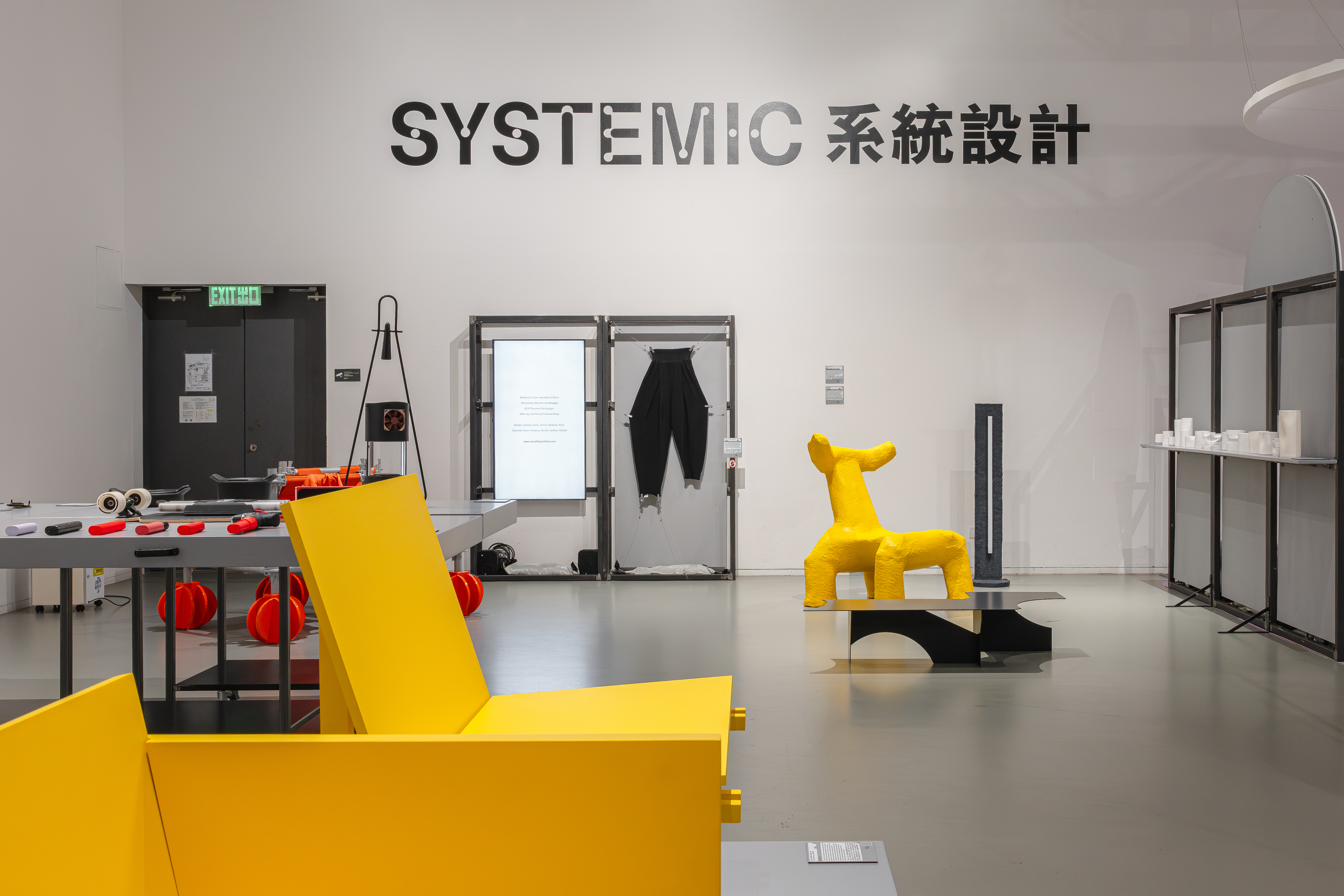




HKDI Gallery
Hong Kong
ph: ©Ken Wong
“Italy: a New Collective Landscape” the exhibition dedicated to Italian designers under 35, opens in Hong Kong at HKDI Gallery and begins its journey around the world.
The curator of the exhibition, produced by ADI Design Museum is Angela Rui along with Elisabetta Donati de Conti and Matilde Losi. The graphic design is by Alice Zani with Paola Bombelli and the set design is by Parasite 2.0
ITALY: A New Collective Landscape is an overview of one hundred young Italian designers under-35 from which the overall image emerges as a plural and feasible model of society, where the notion of commoning draws on a myriad of new negotiations. Virtuous ways of thinking, being and producing, committed to giving back more than they take. Considering ourselves as part of the web of life, in which human and non-human, geological, biological and technological agents are interconnected, can design culture approach the notion of radical interdependence as a new field of action? Can design practice come up with concrete proposals to become a tool for social, ecological and political transition, producing workable visions aimed at designing kinder relationships? The configuration of the exhibition highlights congruences with respect to three design virtues – systemic, relational and regenerative – knowing that this landscape could be reconfigured in a myriad of new readings and associations.

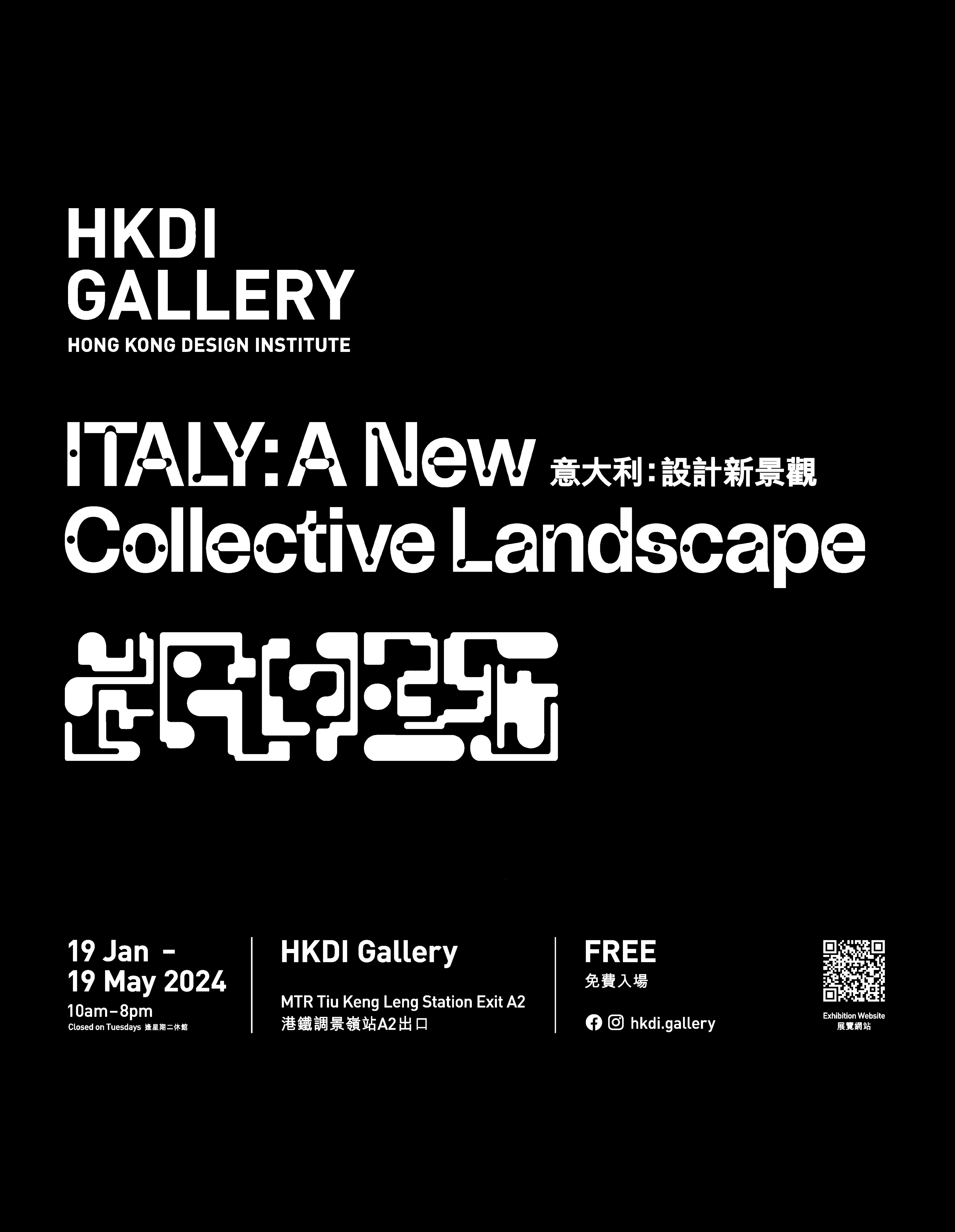
2023__Venice Design Biennial__Venice, Italy Exhibitions
![]()
SPUMA - SPACE FOR THE ARTS
Auto-Exotic is the theme of the fourth edition of the Venice Design Biennial, whose
programme of exhibitions returns to Venice from 19 May to 18 June, in parallel with
the first month of the Architecture Biennale.
The curatorial theme of this edition, proposed by the curators and founders of the project, Luca Berta and Francesca Giubilei, is Auto-Exotic.
The exotic is dead - long live the exotic. They stole from us elsewhere! What is to be done? There will be a self-elsewhere somewhere else. Designers from all over the world unite, self-colonize, self-appropriate!
In his seminal essay Orientalism (1978), Edward Said showed how since the eighteenth century the cultural investigation of the East, understood as the physical and mental space of exoticism, revealed conceptual connections with colonialist practices. Elsewhere, populated by odalisques and caliphs, full of mysteries and sensuality, exercised a fascination in Europe that was intertwined with the practices of political, military and commercial hegemony.
Exciting passivity, femininity, indolent sensuality-sexuality, immobility, traditionalism, irrationality: all distinctive traits projected on the East to obtain in negative the mold where to pour the incandescent material - virile, progressive, rational - of Western identity.
In recent years, two interrelated phenomena have emerged, which have radically altered this scenario. On the one hand, “exotic” cultures and civilizations have spectacularly reversed the cliché of immobile traditionalism. The great emerging powers are located outside the West. It is the West that shows signs of declining immobility. Elsewhere has found its voice - and it is different from what we expected.
The other phenomenon is the correlative decline of globalization as we have known it, that is, as a perpetual expansive motion of Western capitalism. In all likelihood, capitalist dominance remains, what is wavering is its western declination, with the corollary of social and political aspects, whose export value has turned out to be modest to say the least. In the meantime, globalization has done its job, and everything that in the past manifested itself in an aura of unattainable distance now appears to be at hand anytime, anywhere, without delay.
The consequence is that the search for the exotic, for the exciting and mysterious elsewhere, slides towards a horizon that no longer extends geographically, but rather collects itself in the more or less hidden folds of our own culture of belonging, and in its own offshoots both in the sense of marginality and avant-garde.
The challenge for designers today is how to investigate this otherness, near and far, in a way purified of stale prejudices, but not without the radicalism of those who want to break down prejudices. The Venice Design Biennial wants to invite them to present their vision in a city that is the cradle of the concept of the exotic, a hinge between West and East, where the account of Marco Polo’s legendary journey for the first time opened new horizons to th gaze and to the imagination applied to an elsewhere beyond the limits of known experience.
![]()
![]()
Exhibitions
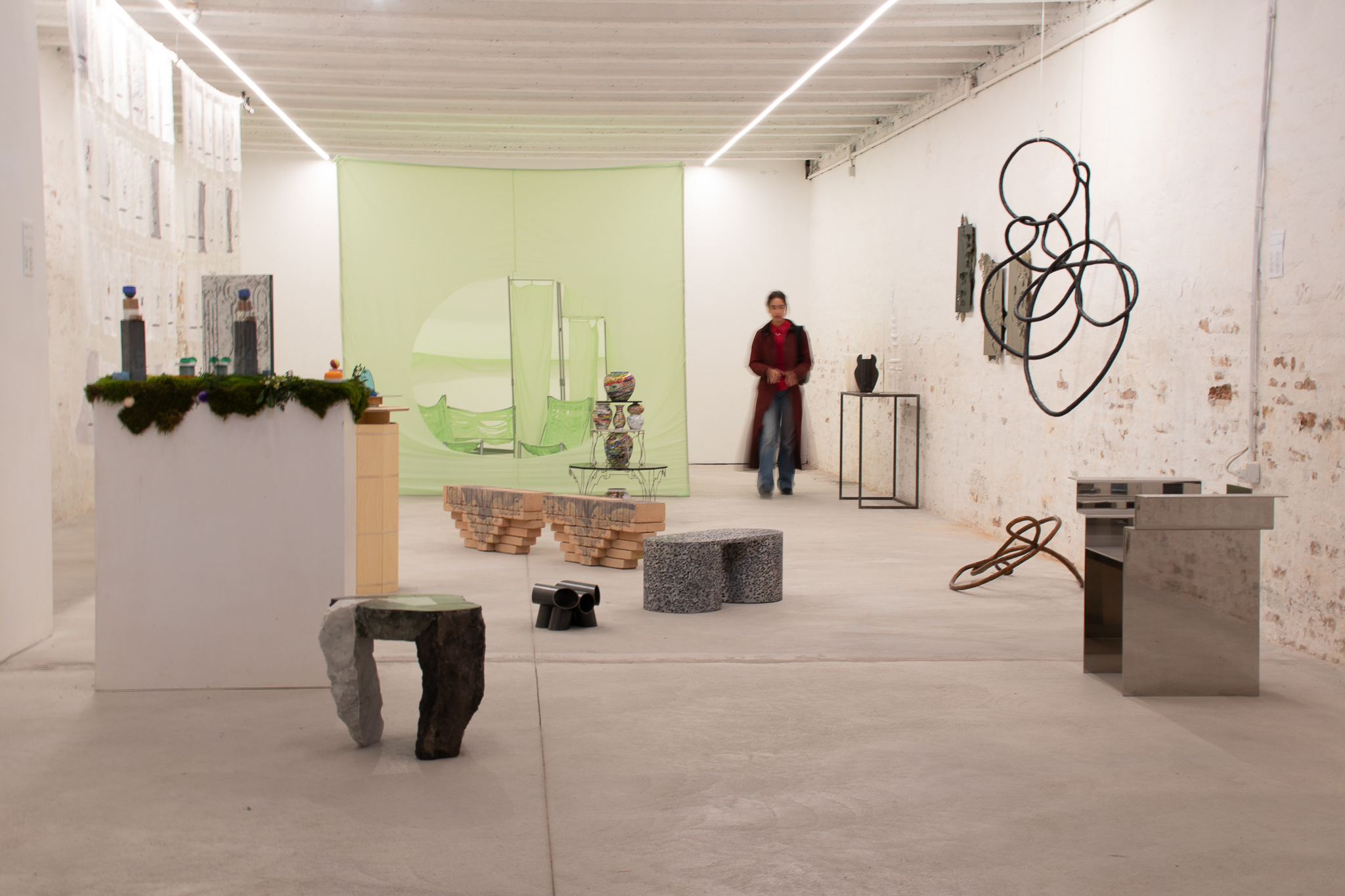
SPUMA - SPACE FOR THE ARTS
Fondamenta San Biagio 800R
Giudecca Island
ph: ©Giacomo Gandola
Auto-Exotic is the theme of the fourth edition of the Venice Design Biennial, whose
programme of exhibitions returns to Venice from 19 May to 18 June, in parallel with
the first month of the Architecture Biennale.
The curatorial theme of this edition, proposed by the curators and founders of the project, Luca Berta and Francesca Giubilei, is Auto-Exotic.
The exotic is dead - long live the exotic. They stole from us elsewhere! What is to be done? There will be a self-elsewhere somewhere else. Designers from all over the world unite, self-colonize, self-appropriate!
In his seminal essay Orientalism (1978), Edward Said showed how since the eighteenth century the cultural investigation of the East, understood as the physical and mental space of exoticism, revealed conceptual connections with colonialist practices. Elsewhere, populated by odalisques and caliphs, full of mysteries and sensuality, exercised a fascination in Europe that was intertwined with the practices of political, military and commercial hegemony.
Exciting passivity, femininity, indolent sensuality-sexuality, immobility, traditionalism, irrationality: all distinctive traits projected on the East to obtain in negative the mold where to pour the incandescent material - virile, progressive, rational - of Western identity.
In recent years, two interrelated phenomena have emerged, which have radically altered this scenario. On the one hand, “exotic” cultures and civilizations have spectacularly reversed the cliché of immobile traditionalism. The great emerging powers are located outside the West. It is the West that shows signs of declining immobility. Elsewhere has found its voice - and it is different from what we expected.
The other phenomenon is the correlative decline of globalization as we have known it, that is, as a perpetual expansive motion of Western capitalism. In all likelihood, capitalist dominance remains, what is wavering is its western declination, with the corollary of social and political aspects, whose export value has turned out to be modest to say the least. In the meantime, globalization has done its job, and everything that in the past manifested itself in an aura of unattainable distance now appears to be at hand anytime, anywhere, without delay.
The consequence is that the search for the exotic, for the exciting and mysterious elsewhere, slides towards a horizon that no longer extends geographically, but rather collects itself in the more or less hidden folds of our own culture of belonging, and in its own offshoots both in the sense of marginality and avant-garde.
The challenge for designers today is how to investigate this otherness, near and far, in a way purified of stale prejudices, but not without the radicalism of those who want to break down prejudices. The Venice Design Biennial wants to invite them to present their vision in a city that is the cradle of the concept of the exotic, a hinge between West and East, where the account of Marco Polo’s legendary journey for the first time opened new horizons to th gaze and to the imagination applied to an elsewhere beyond the limits of known experience.


2023__ADI Design Museum__Milan, Italy Exhibitions
![]()
![]()
ITALY: A New Collective Landscape
ITALY: A NEW COLLECTIVE LANDSCAPE
At the ADI Design Museum an exhibition entirely dedicated to designers under 35 who grasp the challenges of the global moment, curated by Angela Rui.
The issues before which this global moment places us and the continuous ecological and social transformations constitute the starting point for the works of young Italian designers presented by Italy: A New Collective Landscape. Produced by ADI Design Museum, the exhibition has the curatorship of Angela Rui with Elisabetta Donati de Conti and Matilde Losi, the graphic design of Alice Zani with Paola Bombelli, and the installation of Parasite 2.0 studio.
![]()
"The title of this exhibition may sound familiar. It originates from and transforms "Italy: The New Domestic Landscape," the exhibition curated by Emilio Ambasz at the MoMA in New York in 1972 that brought Italian design to the world by making Italy the benchmark of the modern discipline par excellence. The choice to refer to this exhibition is to understand that exporting the idea of Italian Design through the work of (then) young designers made the fortune of an entire system whose reverberations are still felt today. The exhibition stands as a proposal to overcome the nostalgia that so ties design circles to that historical period because, perhaps, the creative response could once again inspire a productive and manufacturing fabric in search of change." says Angela Rui, curator of the exhibition.
The protagonists are one hundred young designers under 35, whose works were also selected through an open call in which nearly four hundred participated. Italy: A New Collective Landscape aims to be an exhibition-program revolving around the projects, products and new practices of the designers, who are committed to meeting the challenges posed by the current moment, starting with the climatic, social and economic crises, and the repercussions these have on reality itself.
"Discomfiting Giorgio Gaber, we can reiterate how freedom is not a free space, but participation; this analysis that takes shape in the exhibition highlights the political dimension of making design today." comments President ADI, Luciano Galimberti.
![]()
Exhibitions
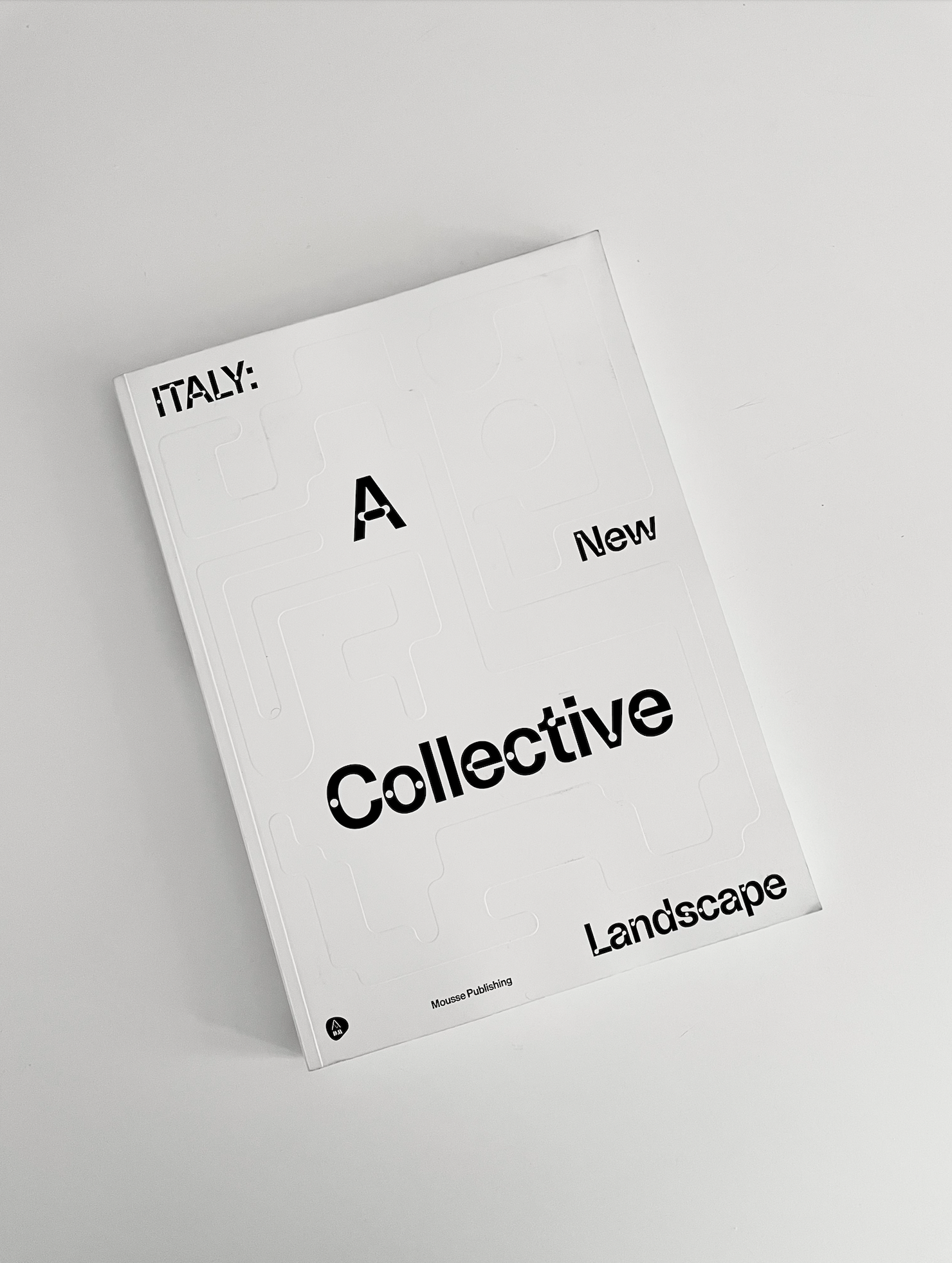

ITALY: A New Collective Landscape
Catalogue
graphic project: Alice Zani, Paola Bombelli
ITALY: A NEW COLLECTIVE LANDSCAPE
At the ADI Design Museum an exhibition entirely dedicated to designers under 35 who grasp the challenges of the global moment, curated by Angela Rui.
The issues before which this global moment places us and the continuous ecological and social transformations constitute the starting point for the works of young Italian designers presented by Italy: A New Collective Landscape. Produced by ADI Design Museum, the exhibition has the curatorship of Angela Rui with Elisabetta Donati de Conti and Matilde Losi, the graphic design of Alice Zani with Paola Bombelli, and the installation of Parasite 2.0 studio.
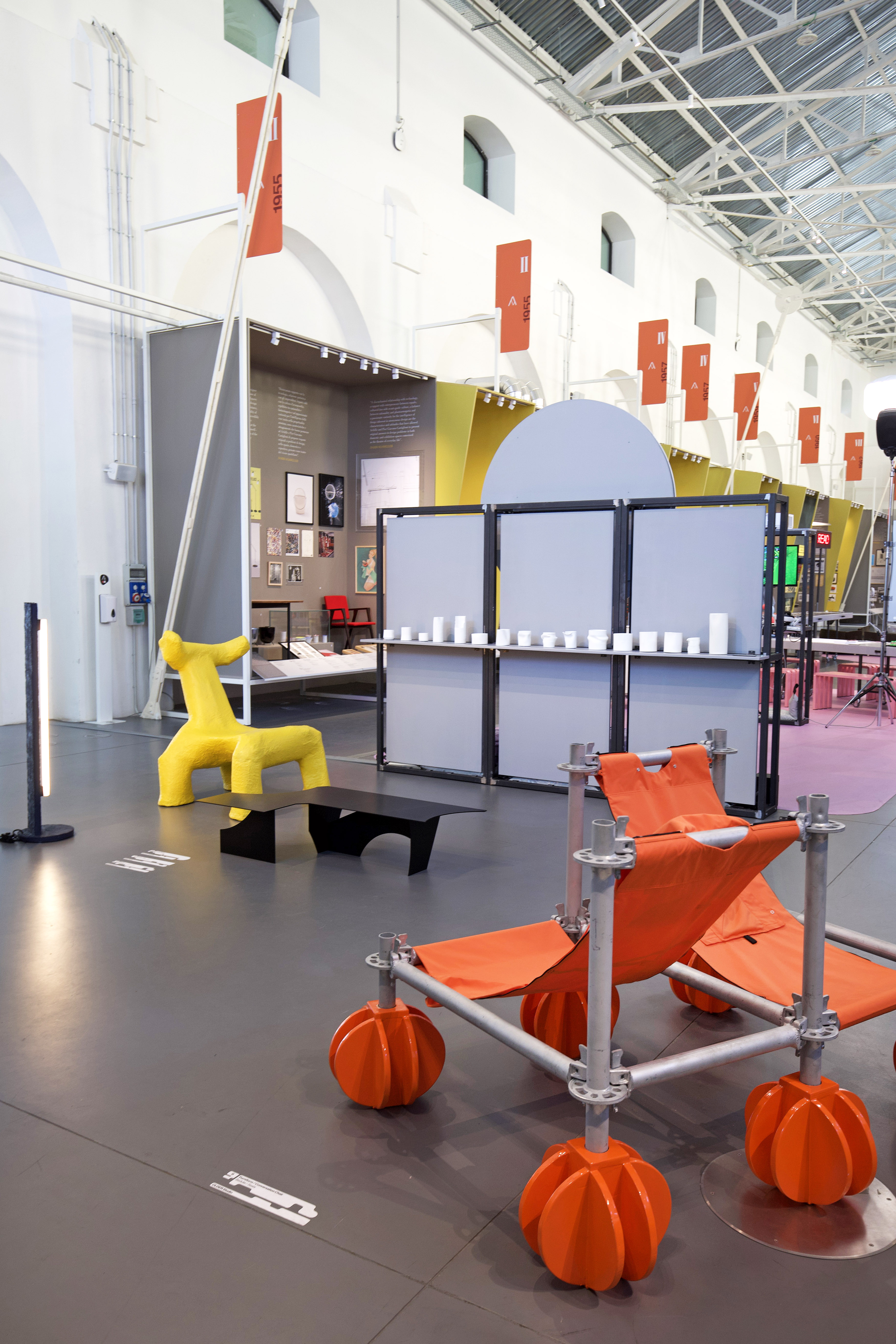
ph: ©Martina Bonetti
"The title of this exhibition may sound familiar. It originates from and transforms "Italy: The New Domestic Landscape," the exhibition curated by Emilio Ambasz at the MoMA in New York in 1972 that brought Italian design to the world by making Italy the benchmark of the modern discipline par excellence. The choice to refer to this exhibition is to understand that exporting the idea of Italian Design through the work of (then) young designers made the fortune of an entire system whose reverberations are still felt today. The exhibition stands as a proposal to overcome the nostalgia that so ties design circles to that historical period because, perhaps, the creative response could once again inspire a productive and manufacturing fabric in search of change." says Angela Rui, curator of the exhibition.
The protagonists are one hundred young designers under 35, whose works were also selected through an open call in which nearly four hundred participated. Italy: A New Collective Landscape aims to be an exhibition-program revolving around the projects, products and new practices of the designers, who are committed to meeting the challenges posed by the current moment, starting with the climatic, social and economic crises, and the repercussions these have on reality itself.
"Discomfiting Giorgio Gaber, we can reiterate how freedom is not a free space, but participation; this analysis that takes shape in the exhibition highlights the political dimension of making design today." comments President ADI, Luciano Galimberti.
